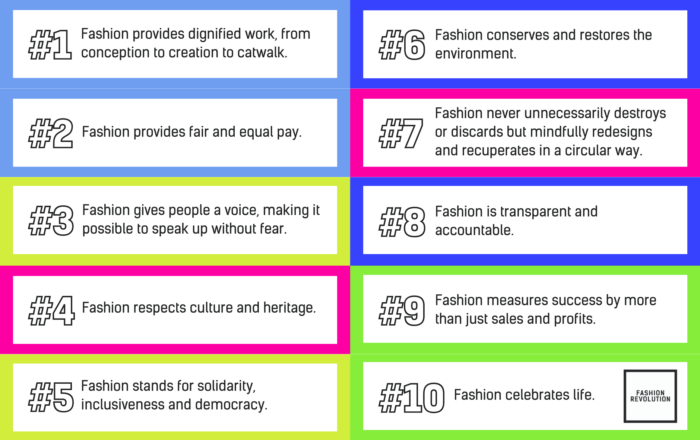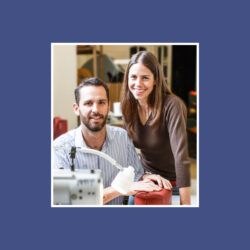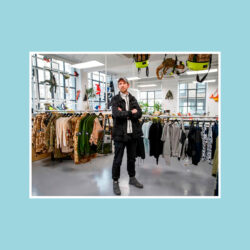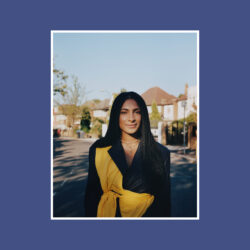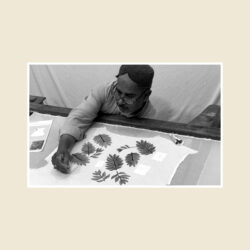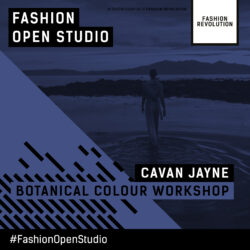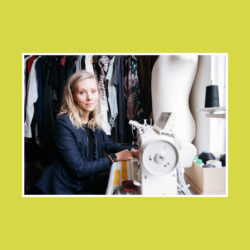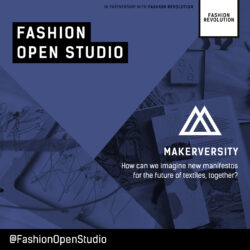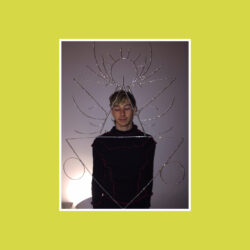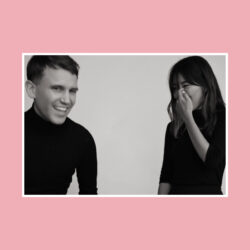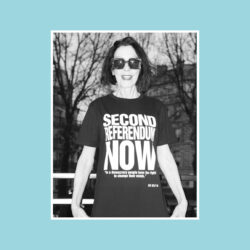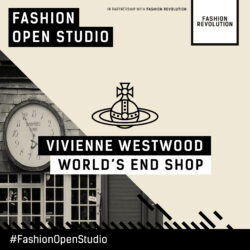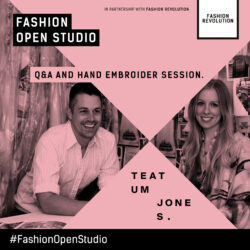Manila, Philippines – The Fashion Revolution Philippines commemorates the victims of the Rana Plaza factory collapse in Bangladesh, in alignment with the Fashion Revolution week held globally. The Rana Plaza factory collapse killed 1,138 textile workers and injured more people became an eye-opener to the world on 24 April 2013. The incident drove the Fashion Revolution movement to push for labor rights transparency and sustainability in the fashion world.
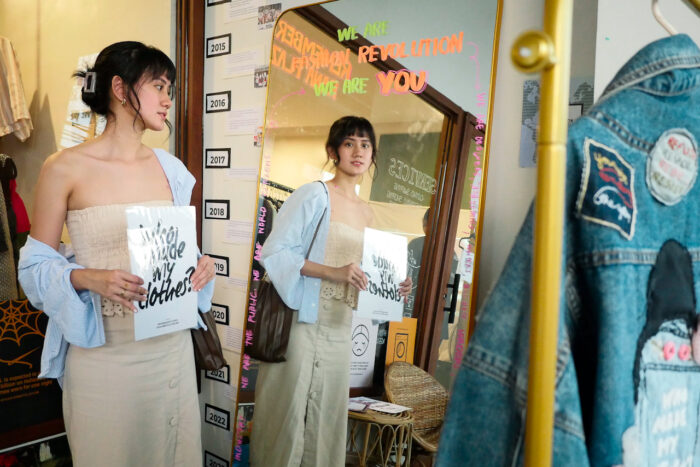
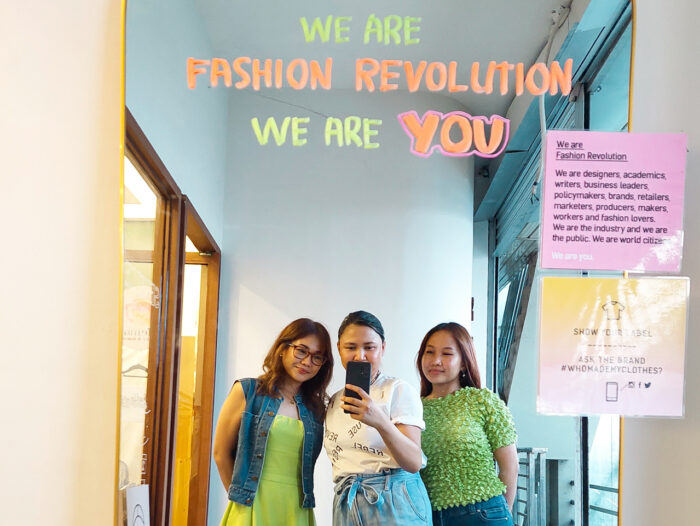
The Fashion Revolution Philippines’ first in-person event held for two days since the pandemic started. The two-day event happened in Moda Laya in commemoration of the 10 anniversary after Rana Plaza disaster. Attendees participated in activities such as clothes swapping, panel discussion with the experts and the screen showing of two documentary films.
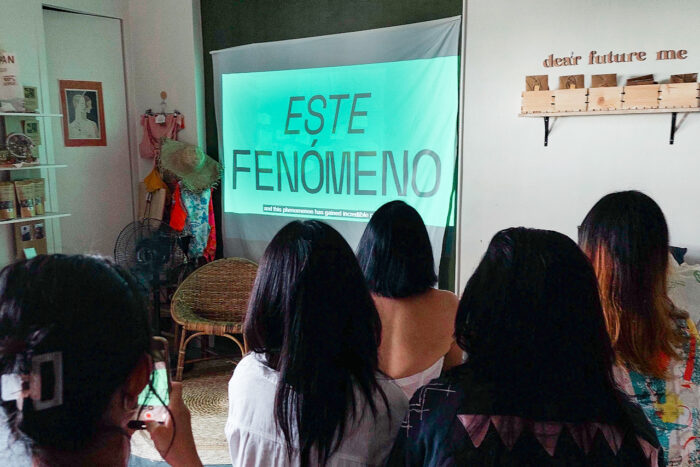
The “Se Abrió Paca,” a film made by the Fashion Revolution Guatemala, gave a heartfelt discussion among its viewers just after it was shown with the “True Costs” documentary and the power outage on the first day. Activities on the next day went well with the clothes swapping and panel discussion. Prince Ventura leads the panel discussion with Bianca Gregorio, owner of Moda Laya and founder of Re-clothing, Irene Subang, sustainable fashion designer and educator, and Jamie Naval, founder and CEO of Twenty Kids and Barrio Studios. Our guest experts discussed that the society today needs to focus on the importance of sustainable practices and a circular wardrobe.
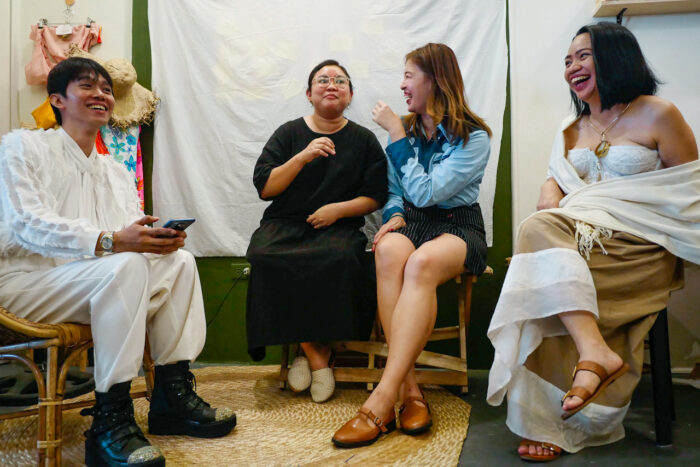
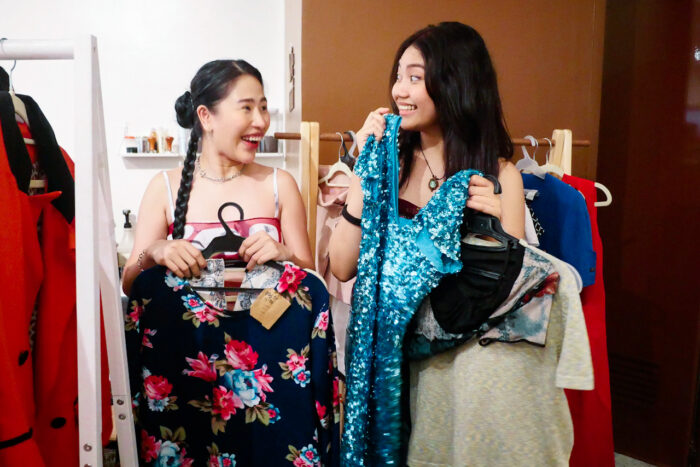
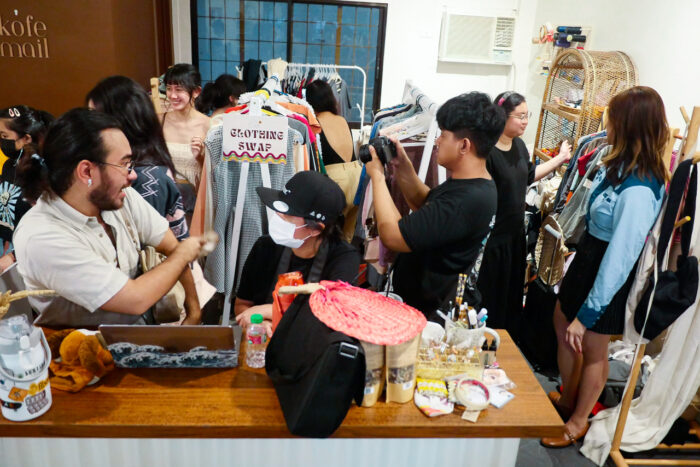
Fashion Revolution Week is our annual campaign bringing together the world’s largest fashion activism movement for seven days of action. It centres around the anniversary of the Rana Plaza factory collapse, which killed around 1,138 people and injured many more on 24 April 2013.
This year, as we marked the tenth anniversary of the Rana Plaza factory collapse, we remembered the victims, survivors and families affected by this preventable tragedy and continue to demand that no one dies for our fashion. To define the next decade of change, we translated our 10-point Manifesto into action for a safe, just and transparent global fashion industry. Our campaign platformed the work of our diverse Global Network who provided local interpretations of their chosen Manifesto point(s). We believe that while fashion has a colossal negative impact, it also has the power and the potential to be a force for change. Together, we expanded the horizons of what fashion could – and should – be.
Here, catch up on some of the week’s highlights and find out how to stay involved with our work, all year round.
Remembering Rana Plaza
Fashion Revolution Week happens every year in the week coinciding with April 24th, the anniversary of the Rana Plaza disaster. On April 24th 2013, the Rana Plaza factory building in Bangladesh collapsed in a preventable tragedy. More than 1,100 people died and another 2,500 were injured, making it the fourth largest industrial disaster in history. On April 24th, we paused all other campaigning to pay our respects to the victims, survivors and families affected by this tragedy, and came together as a global community to remember Rana Plaza.
As we reflect a decade on, we are inspired by and celebrate the progress made in the Bangladesh Ready-made Garment (RMG) sector by the Accord. The International Accord on Fire and Building Safety was the first legally-binding brand agreement on worker health and safety in the fashion industry and is the most important agreement to keep garment workers safe to date. This year, we pay tribute to the joint efforts of all Accord stakeholders who have significantly contributed to safer workplaces for over 2 million garment factory workers in Bangladesh, including the Bangladeshi trade unions representing garment workers, alongside Global Union Federations and labour rights groups. We welcome the introduction of the Pakistan Accord and would like to see the adoption and success of the International Accord replicated in all garment producing countries.
Manifesto for a Fashion Revolution
Our theme for Fashion Revolution Week 2023 was Manifesto for a Fashion Revolution. Back in 2018, we created a 10-point Manifesto that solidifies our vision to a global fashion industry that conserves and restores the environment and values people over growth and profit. This year we called on citizens, brands and makers alike to sign their name in support of turning these demands into a reality, boosting our signature count to 15,500 Fashion Revolutionaries and counting. We are immensely grateful to everyone who has and continues to sign; our power is in our number and each signature strengthens our collective call to revolutionise the fashion industry.
To campaign for systemic change in the fashion industry, we themed the week around complementary Manifesto points, providing ways to be curious, find out and do something daily around each of them. From supply chain transparency to living wages, textile waste to cultural appropriation, freedom of association to biodiversity, we shared global perspectives and solutions to fashion’s most pressing social and environmental problems.
Over the past ten years, the noise around sustainable fashion has only got louder. But meanwhile, real progress is too slow in the context of the climate crisis and rising social injustice. That’s why Fashion Revolution Week 2023 was an action-packed and future-focused campaign that amplified the actions and perspectives of Fashion Revolutionaries around the world.
View this post on Instagram
Global Conversations
To capture these global perspectives, we launched the Fashion Revolution Map on Earth Day, which coincided with the start of Fashion Revolution Week. Developed by Talk Climate Change, the Map served as a global forum to reflect on the week’s themes and events, using our Manifesto as a talking point. Fashion Revolutionaries continued the discussion offline by inviting their family, friends, colleagues and classmates to imagine what a clean, safe, fair, transparent and accountable fashion industry would look like with us. These conversations were then recorded on the Map as a source of inspiration and knowledge exchange.
Anyone can be a Fashion Revolutionary; it starts with a simple dialogue about the changes you want to see in the fashion industry. Make your voice heard by contributing to our map today and help change the fashion industry through the power of conversation!
View this post on Instagram
Good Clothes, Fair Pay Highlights
Ten years on from Rana Plaza, poverty wages remain endemic to the global garment industry. Most of the people who make our clothes still earn poverty wages while fashion brands continue to turn huge profits. At Fashion Revolution, we believe there is no sustainable fashion without fair pay which is why we launched Good Clothes, Fair Pay as part of a wider coalition last July. The Good Clothes Fair Pay campaign demands living wage legislation at EU level for garment workers worldwide, building on Manifesto points 1 and 2.
During Fashion Revolution Week, our EU teams coordinated awareness events, campaigns and marches to mobilise signatures for this campaign. On April 25th, we headed to the European Parliament with Fashion Revolution Belgium to demand better legislation in the fashion industry. The day of action consisted of a panel discussion between Members of the European Parliament and impacted fashion stakeholders, and ended with a stunt outside the Parliament. Fashionably Late highlighted that the EU is running out of time to act on poverty wages in fashion. This stunt was replicated by our teams in Germany, France and the Netherlands throughout Fashion Revolution Week to demonstrate EU-wide solidarity with the people who make our clothes.
We have less than three months left to collect 1 million signatures from EU citizens to push for legislation that requires companies to conduct living wage due diligence in their supply chains, irrespective of where their clothes are made. If you are an EU citizen, sign your name here. If you’re unable to sign, please support the campaign by sharing it far and wide online.
View this post on Instagram
Fashion Revolution Open Studios Highlights
Fashion Revolution Open Studios is Fashion Revolution’s showcasing and mentoring initiative since 2017. Through exhibitions, presentations, talks, and workshops with emerging designers, established trailblazers and major players, we celebrate the people, products and processes behind our clothes.
This Fashion Revolution Week, Fashion Revolution Open Studios joined forces with Small but Perfect to spotlight the work of 28 European SMEs taking part in their circularity accelerator project. Forming part of this European events programme, Fashion Revolution Open Studios held a two-day event in partnership with The Sustainable Angle and xyz.exchange at The Lab E20. The event showcased seven innovative designers from the Small But Perfect cohort of sustainable SMEs and displayed how they are embedding circular solutions into their work, from crafting grape leather handbags to developing community approaches to making and working together. Alongside the exhibition, there were livestreamed webinars, workshops and panel discussions to explore the projects and hear about some of the the challenges facing small businesses and the industry at large in switching to circular business models.
Global Network Highlights
With 75+ teams from all around the world, Fashion Revolution Week 2023 championed the perspectives and contributions of our Global Network. Here are just a small selection of highlights from our country teams:
Fashion Revolution New Zealand unpacked each Manifesto point with industry trailblazers in an Instagram Live series.
Fashion Revolution teams in Bangladesh and Sweden co-organised a virtual panel discussion on shifting consumer behaviour.
Fashion Revolution Singapore celebrated the launch of their digital zine MANIFESTO.
Fashion Revolution teams in Iran and Germany collaborated on Women, Life, Freedom, a joint exhibition.
Fashion Revolution Nigeria shared the stories and journeys of local slow fashion brands.
Fashion Revolution Argentina invited us to join their Wikipedia edit-a-thon.
Fashion Revolution teams in Vietnam, South Africa and Scotland hosted local community clothing swaps.
Fashion Revolution India won the Elle Sustainability Award for Eco-Innovation in Fashion.
Fashion Revolution Uganda brought together the country’s top designers and brands at Kwetu Kwanza.
Fashion Revolution teams in UAE and Canada both held local design competitions for students.
Fashion Revolution Hungary championed the revival of traditional folklore practices in clothing and fashion.
Fashion Revolution USA discussed the fashion industry’s impact on people and planet in a 2-part Zoom series.
Fashion Revolution Uruguay hosted Fashion Celebrates Life, a community picnic themed around Manifesto point 10.
Fashion Revolution teams in Chile and Portugal shared their Fashion Revolution Week highlights with us on Instagram Live.
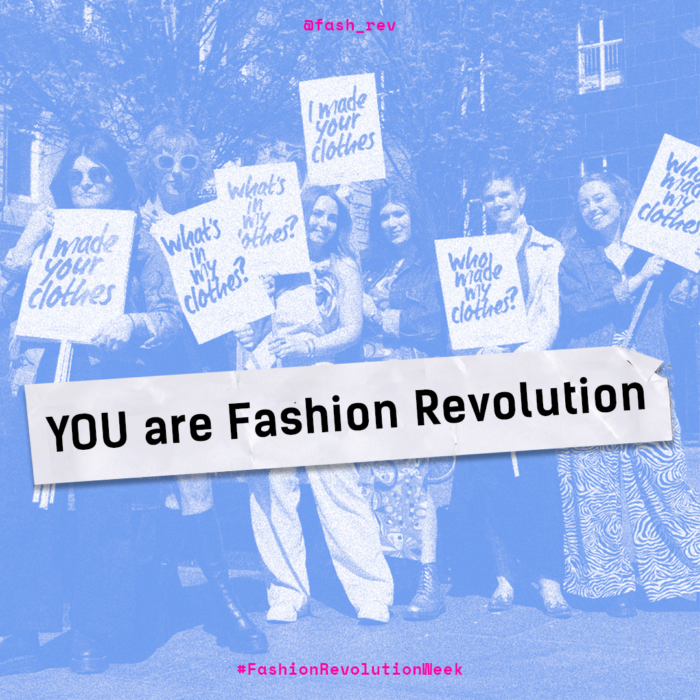
You are Fashion Revolution
We are so grateful to everyone in our community for getting involved in Fashion Revolution Week on social media and beyond. Every single voice makes a difference in our fight for a fashion industry that conserves and restores the environment and values people over growth and profit.
While Fashion Revolution Week 2023 may be over, our community, our campaigning and our movement continues, 365 days a year. Please join us in fighting for systemic change by:
Following us on social media: Stay up-to-date by following us on Instagram, Facebook, Twitter, TikTok, LinkedIn and YouTube, and signing up to our weekly newsletter.
Finding your country team: Connect with the teams in your region by following them online, attending their events and volunteering with them. Find your country team here.
Using our online resources: Our website is a treasure trove of information, from how to guides and online courses to annual reporting on transparency on the fashion industry. Get started here.
From all of us in the Fashion Revolution team, we appreciate your support and we look forward to seeing you next year!
Fashion Open Studio is Fashion Revolution’s showcasing and mentoring initiative which champions the designers, textile artists and small fashion brands that are showcasing inspiring solutions to the social and environmental issues in the fashion industry.
Last month, we hosted a Showcase With a Difference, an exhibition featuring 10 designers with a focus on product and purpose. The showcase explored how the clothes in the exhibition were made, and gave us an understanding of why and how these designers are rejecting the industry’s bad habits. The aim was to change the ways we all think about our clothes and the processes and purpose behind them. The installation was brought to life by a programme of workshops and events demonstrating how clothes can be made in ways that are local, create and nurture community, promote wellbeing and positivity, and embrace more equitable business models that value the people and the planet over profit.
Showcase With A Difference took place at The Lab E20, a unique creative space in East London, and was supported by Get Living, Future City and Mayor of London. It was art directed by award-winning designer Matthew Needham, who specialises in combining materials, experience, and community to create works that are both educational and conscious, inspiring a symbiotic approach towards living our lives in parallel with the planet.
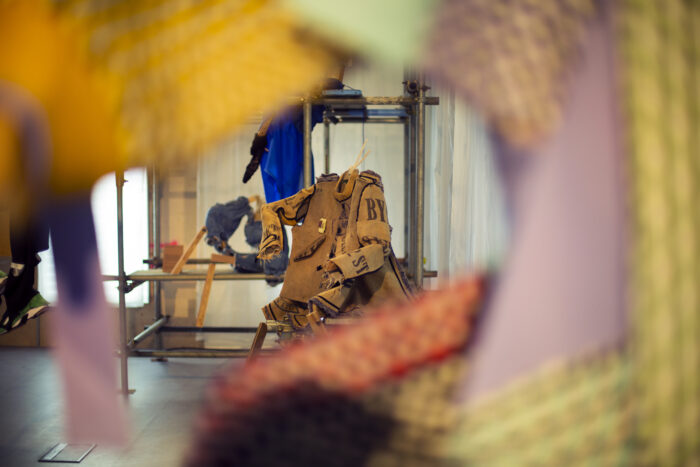
As part of our curation, we asked each of the designers featured in the showcase ‘What is your purpose was as a designer?” and here are some of their responses…
‘My purpose is to encourage more sustainable, conscious and circular methods of creating and consuming fashion so that we can still enjoy clothes and accessories without harming our planet and people.’
‘My purpose is to use my brand Anciela as a creative platform that showcases not only fashion but also other Latinx creatives in London. Embracing collaborative experiences across disciplines and encouraging a sense of community and inclusivity.’
‘The brand focuses on the mental health aspect in their design language to nurture and support the necessity to address the high number of mental health problems in their generation and support the desire for connection and a wish for belonging and trust. Sustainability is for Marie as a trained tailor deeply ingrained in her DNA of making. To make processes and applications transparent is supporting this trust for her future wearer. Lueder aims to remember the connection between Human and Nature by working in ritualistic ways collaborating with energy healers and other professionals with a holistic approach.’
‘From the outset, my vision has been to innovate through artisanship and preserve skills. I am driven by the idea that fashion is more than just creating the next thing, but about designing new systems in order to guarantee real sustainable innovation through design that is people centred, environmentally responsible and inclusive. I hope to mainstream diversity by working with older people and fostering new relationships between local communities and the global industry landscape.’
‘Rahemur Rahman’s latest collection is a love story to children of the rag trade. Taking inspiration from the generations of Bangladeshis who call East London home, it is dedicated to the characters who have paved the way before him. The ‘rag trade’ is a colloquial British term for the immigrant-run clothing manufacturing businesses that were once the throbbing heart of Brick Lane. Since the early 00’s, the area has evolved into a cartoon of its former self — often celebrated as a hub of creativity, art and fashion, its local communities are often left in the shadows.’
‘To think about the circularity of each product. If we have a product in our archive that we haven’t sold, we will work into it again and again and develop the design so that it stays present. Turning habits into processes that can grow and making space for our tendencies. Collecting unused items to give them purpose. Understanding that people’s taste changes naturally- we take that when it’s in the process of being moved away from, and give a new life to the items that people don’t want. Going against the conventional fashion brand idea, and embracing designing as a trio but living apart, and how to make it work. To inspire and be inspired by like-minded thinkers. And value collaborators.’
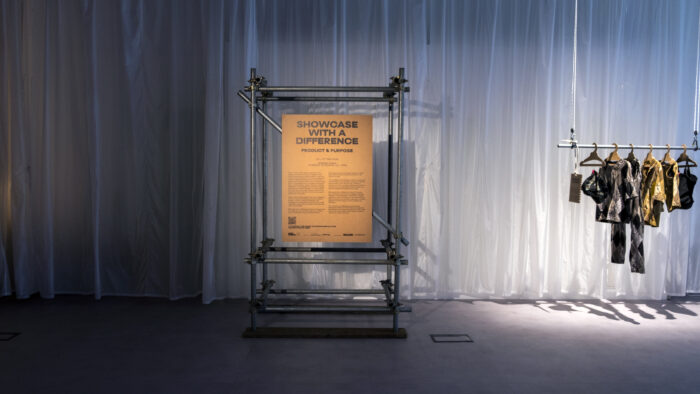
We also asked designers featured in the showcase ‘What do you want to achieve with your work?’ Here is what they said…
‘My process focuses on artisanal techniques, which require a different appreciation for materials and where they come from, which is the case of the vintage napkins and crochet for this garment. It also connects me with many other experts in crafting, and these interchanges help us to develop a more conscious community. Upcycling is inevitable in my process as we are surrounded by waste. I work hard to give another chance to material, either looking into 2nd-hand/vintage garments, deadstock or innovation through new technologies in recycled materials.’
View this post on Instagram
Our designer showcasing and mentoring initiative Fashion Open Studio has joined forces with British Council to present a series of digital events in response to the themes of the United Nations Climate Change Conference COP26.
Launching at Digital Design Weekend at the V&A Museum during London Design Festival in September 2021, nine participating designers from across the world have been selected to open up their studios virtually to showcase their creative responses to fashion’s environmental impact and the themes of Adaptation and Resilience and Nature. The digital event series will take place 25 September – 12 November, forming part of the British Council’s The Climate Connection global programme.

Designers will be taking part from Argentina, Bangladesh, India, Indonesia, Nepal, South Africa, Thailand, Turkey and Zimbabwe. Each designer offers a perspective in response to their own experience.
From Cape Town, Sindiso Khumalo will be showing that social and environmental issues are interconnected. She will be demonstrating repair techniques and discussing inequality and the need for dignified employment to create resilient communities.
Bhukram is a Thai brand devoted to preserving and promoting the indigenous Phu Phan community’s way of life and its natural environment. Their event will offer a rare glimpse into the founder’s home studio in the Bhupan region in northeast Thailand and embroidery techniques that tell the stories of community and nature.
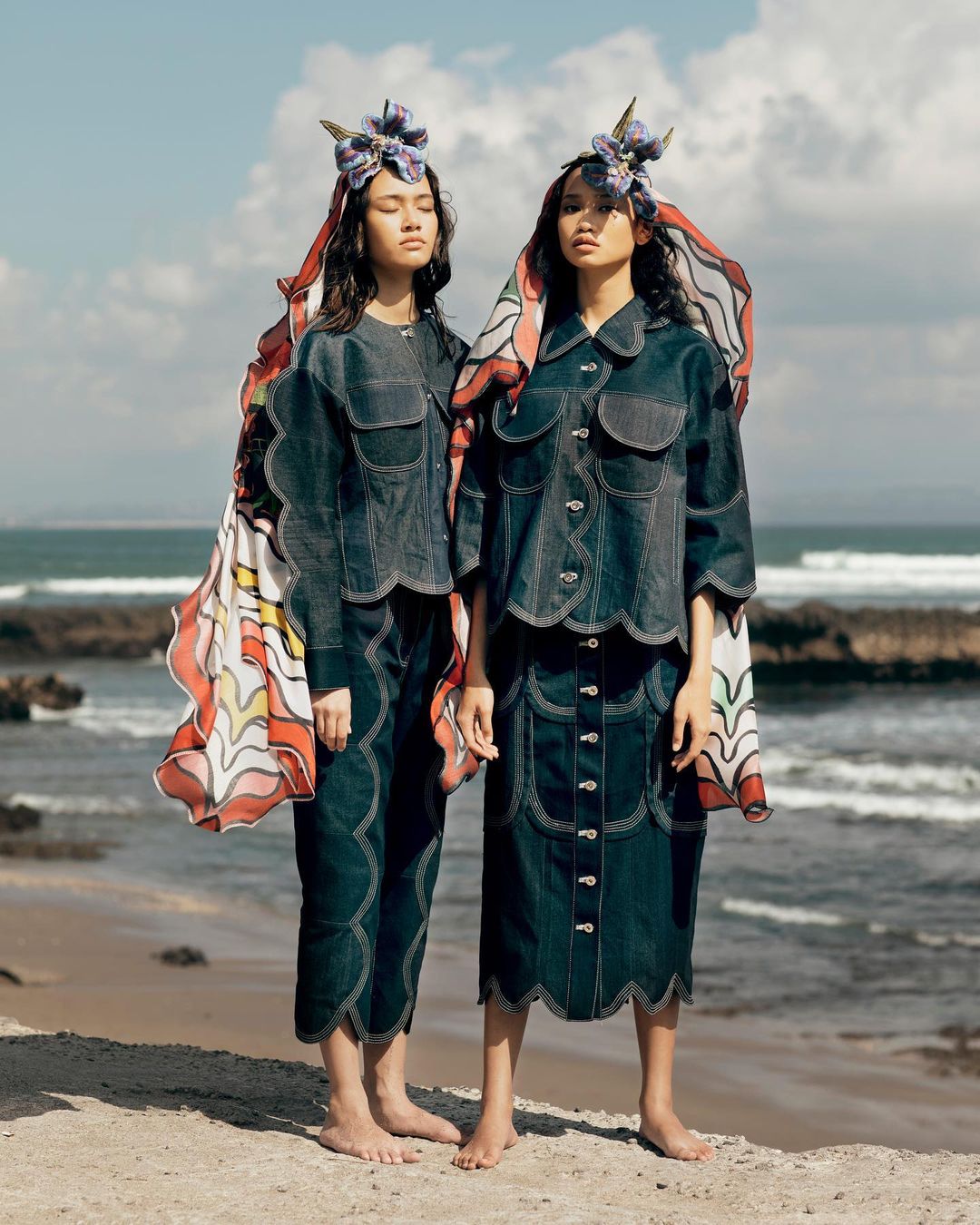
From Jakarta, Indonesia, Toton will be conducting a virtual studio tour, demonstrating their denim upcycling techniques, and sharing the work of an artisan group in Garut, a small town in West Java to highlight their collaboration.
Bora Studio also works with local indigenous communities around Nepal with natural dyeing and traditional craft techniques and will show how a highly localised supply chain and community works in practice, in harmony with people and the planet.
The event series will be animated by a physical activation in Glasgow during COP26 (1-12 November) which will offer the public and COP26 attendees alike an opportunity to interact with the open studio activities in person.
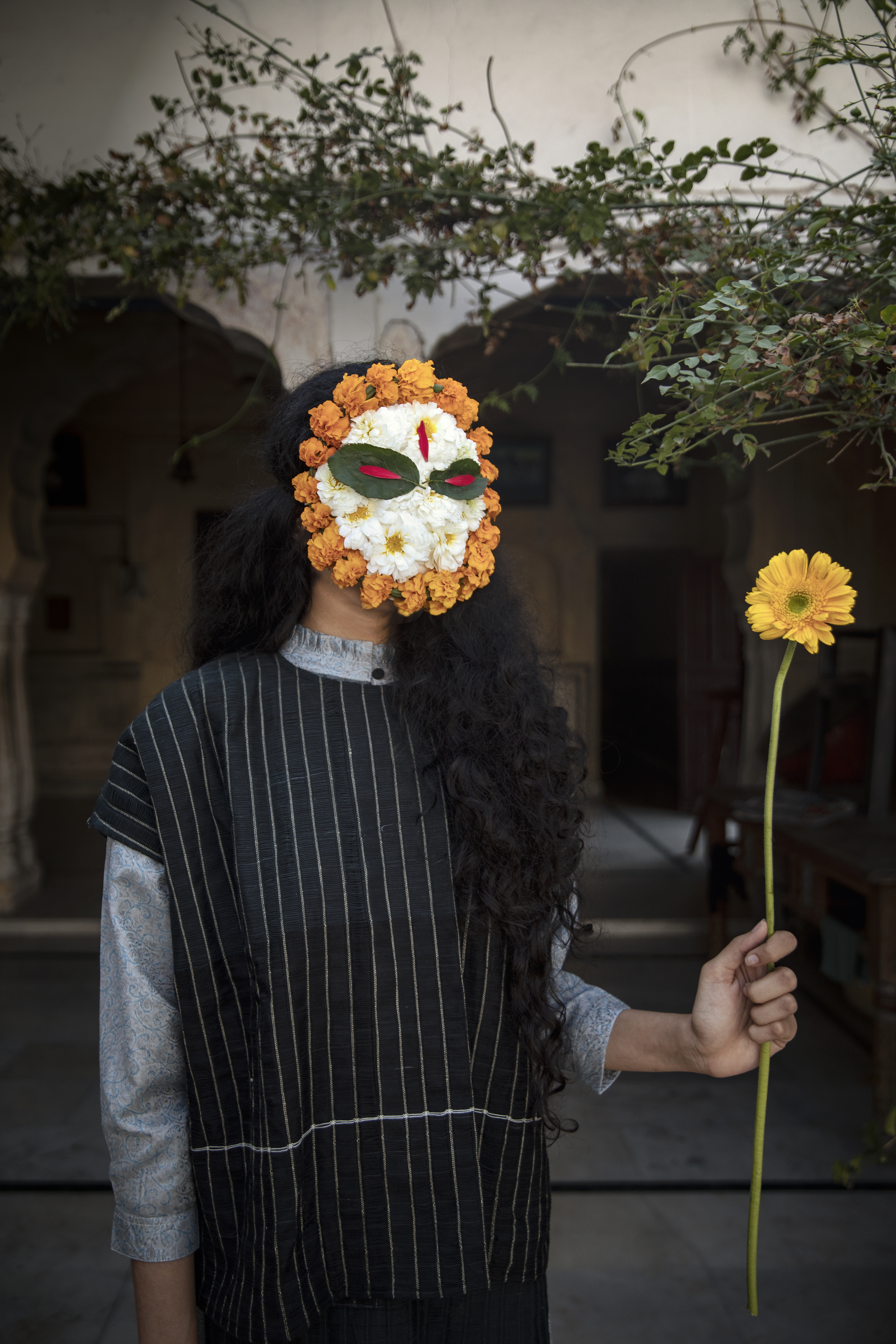
“Fashion Open Studio engages with young and established brands, with the people who make our clothes, for irreverent and forward-thinking debates and workshops that stimulate different viewpoints – COP26 is a crucial moment to put forward viable alternatives to create much-needed change to the fashion system.” – Orsola de Castro, Global Creative Director Fashion Revolution
The cohort of designers will have opportunities for skills and knowledge sharing to support and strengthen their work and knowledge, and the workshop series will culminate in a Speedshare networking event exploring the themes of COP26 in depth. The nine designers selected to take part are Garcia Bello (Argentina/Netherlands), Aranya Craft x Rahemur Rahman (Bangladesh/London), Iro Iro (India), Toton (Indonesia), Bora Studio (Nepal), Sindiso Khumalo (South Africa), Bhukram, (Thailand), Huner (Turkey) and Vimbai Natasha Naomi, (Zimbabwe).
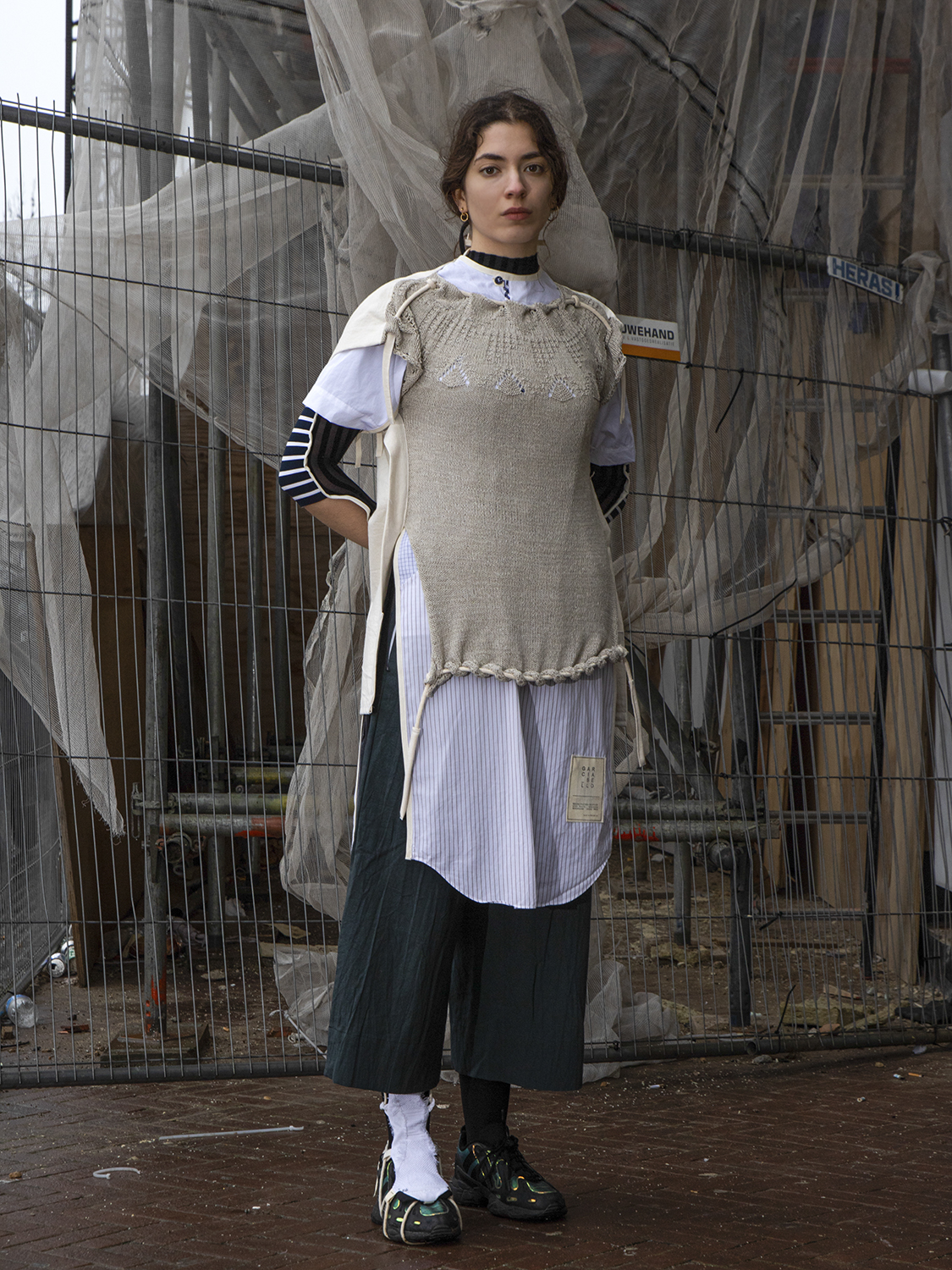
Fashion is one of the most damaging industries in terms of its pollution and greenhouse gas emissions. As a significant contributor to climate change, it is important to highlight some of the solutions the creative and innovative change-makers in the fashion community are putting into practice. Tangible solutions and small-scale innovations have the potential to transform the burdensome impact of the fashion industry.
“We are excited to be collaborating with Fashion Open Studio to bring important themes of COP26 to life through the work of designers who are leading change in the fashion industry around the world. This exchange is at the heart of the British Council Climate Connection, which puts young people at the centre of climate change solutions in order to participate in dialogue, debate and action.” – Sevra Davis, Director of Architecture, Design & Fashion at British Council
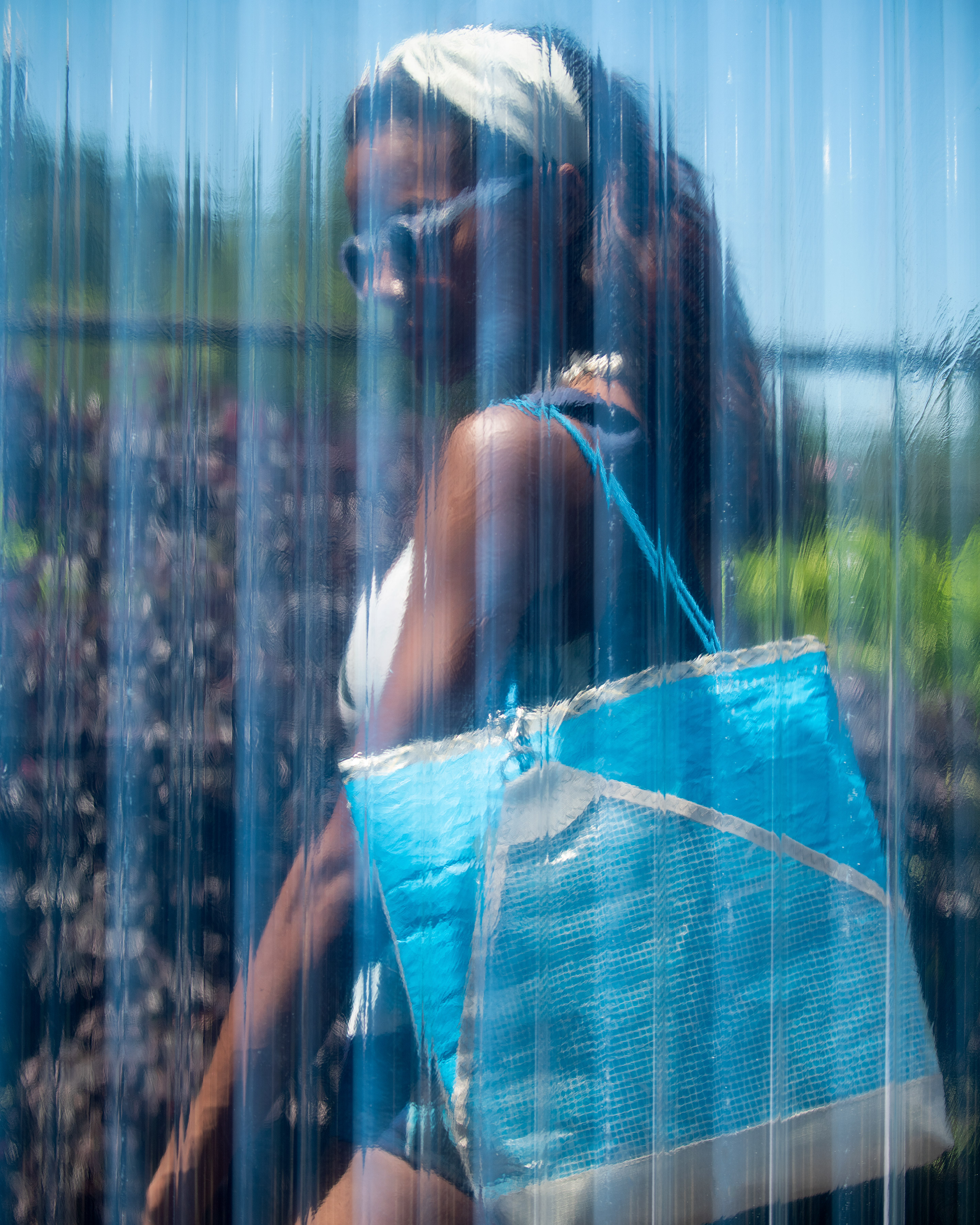
About Fashion Open Studio
Established in 2017, Fashion Open Studio is a Fashion Revolution initiative. As a showcasing platform, the purpose is to shine a spotlight on best practice and innovation being led by fashion and textile designers, biotech labs and retail disruptors. As well as radical new startups, FOS has attracted some of the industry’s biggest names to collaborate, including Vivienne Westwood, Bethany Williams and Christopher Raeburn. The designers are selected for their commitment to clearly defined criteria of responsible design and systemic innovation. Designers share best practices in a transparent and open manner, in a way that offers access and stimulates discussion and questions.
All events will be free to access and available to book at www.fashionopenstudio.com
Fashion Revolution is delighted to announce that our showcasing initiative Fashion Open Studio will be co-curating the 2022 edition of the State of Fashion biennial in Arnhem with NOT____ENOUGH collective, three South-American critical fashion practitioners who explore the roles of oppressor and oppressed in fashion.
The two teams will create a common curatorial framework for the biennial and will organize coinciding programs, that include exhibitions and public events. Coexistence, Exercising, Reparation, Healing, Journey and Change are some of the keywords that the new curatorial team used to introduce their vision to the world in an online press event yesterday.

“These words are the start of an active exchange, between us ánd between us and the audience. Our aim is to move away from the biennial as an isolated event, and to approach it as an ongoing public exercise in which everyone should have a role,” says the team of Fashion Open Studio. We are excited to be working with the members of NOT____ENOUGH collective who ask “How can we subvert the practices of exhibiting, curating and selecting in this biennial? How do we go beyond talking about it to practicing it? What does it look like, what does it feel like? We are opening up our process from the start, as we want people to experience this with us,”
The teams were selected as part of an open call resulting in 118 applications from 31 different countries. We are extremely proud to have been chosen with the support of State of Fashion’s international Creative Advisory Council , consisting of Omoyemi Akerele, Otto von Busch, Carla Fernández, Hakan Karaosman, Aditi Mayer and Amanda Pinatih.
It is the first time the biennial has been curated by a team; there will be an open and collaborative approach to the curatorial process with the aim of including as many voices and perspectives as possible to challenge the dominant culture of the mainstream fashion industry.
The theme of the biennial will be announced in June 2021, during the annual Fashion + Design Festival Arnhem.
Check out the recent This Was an Intervention an online exhibition which is the culmination of the recent programme at State of Fashion.
Follow @fashionopenstudio on Instagram to find out more.
Fashion Open Studio is the Fashion Revolution initiative that engages with designers and practitioners who are actively challenging the status quo of the fashion industry, redesigning supply chains, business models, and the way clothes are made, remade, and unmade. Its purpose is also to highlight the small, the independent, the uncelebrated and unheard voices of the fashion design community. That is why, with the help of the Mayor of London’s Fashion Showcasing Fund, Fashion Open Studio was excited to support emerging adaptive fashion brand [RESET] with the launch of their debut collection during London Fashion Week in February.
[RESET] was launched in 2020 by LCF graduate Monika Dugar and her sister Usha Baid. Dugar was inspired by the concept of Visual Control of Locomotion in Parkinson’s disease. “We became involved in researching the condition after our father was diagnosed with Parkinson’s eight years ago,” says Monika. “The hand tremors, stiffness and slow movement associated with Parkinson’s disease made the dressing routine pesky and difficult for him.”
Since graduating, Monika has been creating an adaptive brand with her distinctive prints and innovative solutions for people with varying abilities and needs. It was important to Monika to show the collection in the context of London Fashion Week. She said: “Designing for differently abled people is not a trend, it’s a necessity. ”
“Balancing fashion through functional clothing will empower people and advocate for inclusiveness – that’s the aim.”
To support [RESET] in their debut collection, Fashion Open Studio offered some creative direction for the brand’s lookbook. Fashion Revolution’s designer, Maria Maleh photographed some of the collection’s key pieces on poet and songwriter Miss Jacqui; producer and presenter, Moeed Majeed; dancer, Kat Hawkins; comedian and founder of tech platform More Human, Emma Lawton, and Candoco dancer Joel Brown. We wanted to find out a bit more about their personal style, and how the fashion industry needs to change to embrace the needs of people with disabilities.
“The vision is to make an impact for the differently-abled by being creative and focus on accessibility,” says Monika. “[R E S E T] sits at the niche of the transformation of fashion in an ageing generation and disabled. The current landscape is changing and becoming more inclusive. There are still gaps in the industry as this Adaptive clothing market has been underserved by mainstream brands and media.” There is much work to be done, but we hope the conversation is opening up, and brands like [RESET] can really make a difference in challenging the idea of who fashion is for and who is represented, not just in terms of sizing, fit and practicalities but in terms of media, imagery and the physical experience of navigating around a high street.
Monika and Usha, talked about their research and the world of adaptive clothing, alongside muse Emma Lawton, Aja Barber, writer and campaigner and Samanta Bullock inclusion campaigner and CEO of retail platform Imperfection. You can watch it here:
To better understand the needs of the people we cast for the [RESET] look book we asked a few questions…
Jacqui Adeniji-Williams
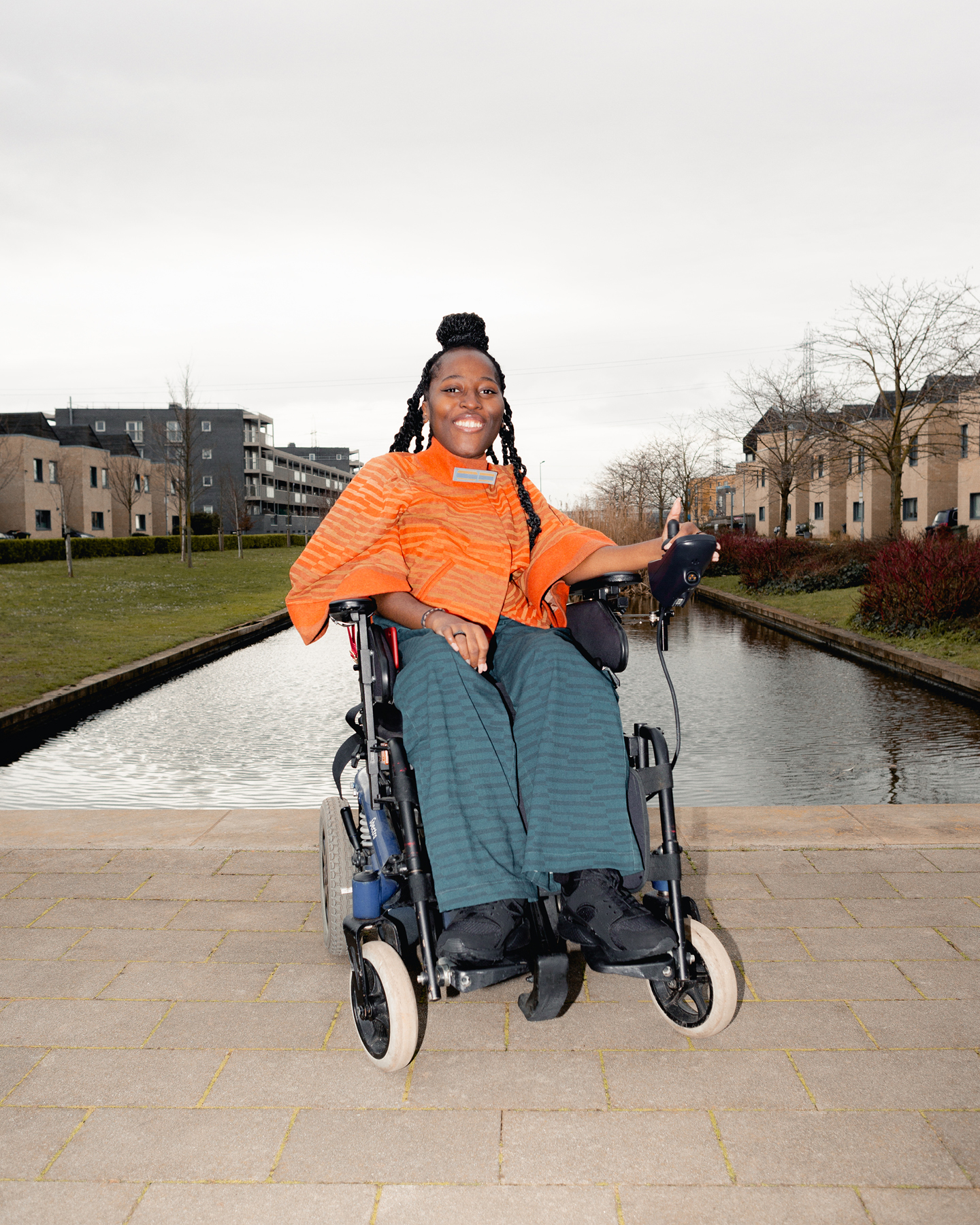
Hello, can you introduce yourself and tell us a bit about you?
My artist name is Miss Jacqui, I’m a poet/spoken word artist and songwriter.
How do you describe your style?
My style is comfy and simple.
Do you have a favourite piece of clothing?
My favourite piece of clothing is a black hoodie cause it’s comfy and simple and you can style it however you want.
What are the main challenges when shopping for clothes and getting dressed in the morning?
When shopping for clothes my biggest challenge is finding clothes that look just as good sitting down – everything seems to be style for non-disabled bodies. On top of some buttons are way too small for me to work probably why I love hoodies.
Are there any brands or platforms you can recommend?
I don’t but I will say when you find clothes you like, that fit well, you will always go back.
What did you think of your outfit by Reset?
I loved my outfit, the colours were great and the top had magnets so goodbye fiddly buttons, the bottoms where super easy to put on and take of as a wheelchair user. Both items had pockets that I could use.
How would you like the fashion and retail industry to change with your needs in mind?
Not all bodies are the same, for me I’d love to work with a designer to design my perfect outfit. I want to challenge the industry to think and explore how to do better for everyone and the environment.
Moeed Majeed
![Moeed Majeed wears a shirt and trousers by [Reset]](https://www.fashionrevolution.org/wp-content/uploads/2021/03/RST_SM_00007.jpg)
Hello, can you introduce yourself and tell us a bit about you?
Hi yo, I’m Moeed Majeed, a podcast producer and tv/radio presenter. Started the South Asian Creatives movement too 🙂 And I live with a Stoma bag due to crohns disease.
How do you describe your style?
Comfort over everything! Since my surgery I’ve adapted into a more oversized style. Anything colorful or patterned. I love me a trackie too 🙂
Do you have a favourite piece of clothing?
I like all my clothes, My Patta tracksuit is my go to thing to wear for sure.
What are the main challenges when shopping for clothes and getting dressed in the morning?
I don’t really face many challenges as I know what I like. However finding things that are comfortable around the waist is probably the thing I have to be most wary of. I’ve developed knowledge of what suits me and I have a few brands I tend to stick to.
Are there any brands or platforms you can recommend?
Unhidden clothing is great for adaptive wear. Other than that I stick to street style brands to be honest. I like the leather jackets from buckle and thread too.
What did you think of your outfit by Reset?
It fitted nicely, I never thought it would be something i’d wear on a day to day but it grew on me for sure.
How would you like the fashion and retail industry to change with your needs in mind?
Have more open discourse regarding what people actually need rather than massprudcing one size for all. On top of that, actually care about people’s needs rather than jumping onto trends to maximise profits.
Emma Lawton
![Emma Lawton wears a blue print dress by [Reset] with her own red tights](https://www.fashionrevolution.org/wp-content/uploads/2021/03/RST_SM_00014-1.jpg)
Hello, can you introduce yourself and tell us a bit about you?
I’m Emma, I’m 37 and I live in London. I’m one of the founders of tech startup More Human, a blogger, author, speaker and stand up comedian. I was diagnosed with Parkinson’s 7 years ago when I was 29.
How do you describe your style?
I would say my style is fun, eye-catching and eclectic while being comfortable. I love mixing brights with greys, sparkle with mattes, vintage with modern and try to wear something vibrant coloured, bold print or sequin in my outfit every day. I really enjoy planning and playing with outfits and items from my big collection of fancy dress and stage attire for my comedy often end up in my everyday looks. Even though my style is eclectic I think it’s quite distinct and most of my friends and family could identify it well enough to shop for me.
Do you have a favourite piece of clothing?
It’s really hard to decide because it regularly changes but at the moment I’d say for clothing my floor length green sequin full skirt and for shoes; my vintage pointed toe white leather basketball booties with bright coloured tassels on the side and Aztec pattern stitching on the foot. Mainly because they’re both quirky and make me smile when I’m wearing them.
What are the main challenges when shopping for clothes and getting dressed in the morning?
I mainly buy clothes online because it’s easier than dragging myself around the shops and there’s more choice. It is a lot harder though to work out whether an item will be easy to put on and wear without trying it on. I don’t have too much difficulty dressing unless there are really fiddly buttons but I know things will get harder so I’m mindful of this when picking clothes that I plan on keeping long-term.
Are there any brands or platforms you can recommend?
I really like an ASOS marketplace collection called Yapp-Yapp for their range of easy to wear co-ord tops and trousers in a whole load of different fabrics. They feel stylish but comfortable. The RESET collection will easily become a favourite as it has the same feel and I love the drape of the fabrics and the little flashes of pattern which elevate the look.
What did you think of your outfit by Reset?
I love Monika’s designs because they’re practical and fun. I felt very comfortable wearing them and the colours and fabrics are beautiful. She’s really thought about the wearability and has a great eye for detail.
How would you like the fashion and retail industry to change with your needs in mind?
I think an understanding of the fact that many people with disabilities will be shopping online and a move to descriptions or video of fastenings etc being added to listings would be really helpful. Other than that I would say greater representation of physical difference in models across the industry and in mainstream brands so their clothing feels like I could wear it. That would help my confidence in making purchases that I know I won’t have to return.
Kat Hawks
![Kat Hawks wears her own top and a skirt with a print by [RESET]](https://www.fashionrevolution.org/wp-content/uploads/2021/03/RST_SM_00005-1.jpg)
Hello, who are you and what do you do?
Hi, I’m Kat, and I’m a dance artist, filmmaker and PhD researcher. I like bodies, movement, dance and seeing disabled people have everything they need to take risks.
How do you describe your style?
Ever-changing, ever-evolving, feeling based, and lots of textures.
Do you have a favourite piece of clothing?
At the moment it’s a cosy crocheted hoody that my friend @sewchanti made for me so I can be the bear I am.
What are the main challenges when shopping for clothes and getting dressed in the morning?
Shopping for clothes is hard. In pre-covid times the changing rooms were a main challenge, hardly ever having seats to sit down, so I’ve returned a lot of stuff. Not knowing whether a material will allow me to move in my prosthetics freely is a challenge, as well as how an item will fit over my legs. In the morning unless I have a lot of time this means I tend to go for ‘staples’, loose clothes, trackies, which isn’t always how I feel I want to dress for that day.
Are there any brands or platforms you can recommend?
@Sewchanti
What did you think of your outfit by Reset?
I loved the skirt, the material was really thick and beautiful, and the velcro made it easy to put on and take off. It hung really nicely so I wasn’t aware of it as I walked, and it didn’t get caught in my prosthetics at all.
How would you like the fashion and retail industry to change with your needs in mind?
The fashion and retail industry should be much more accessible, both in accessibility in stores, on websites, the products they make, and the bodies they use to sell products. They should consult with disabled people to find out what works and what doesn’t, and place disabled people in the creation processes. Disabled people make every industry richer and more creative places, where we can dream new ways of being, and for me that’s what fashion is.
Joel Brown
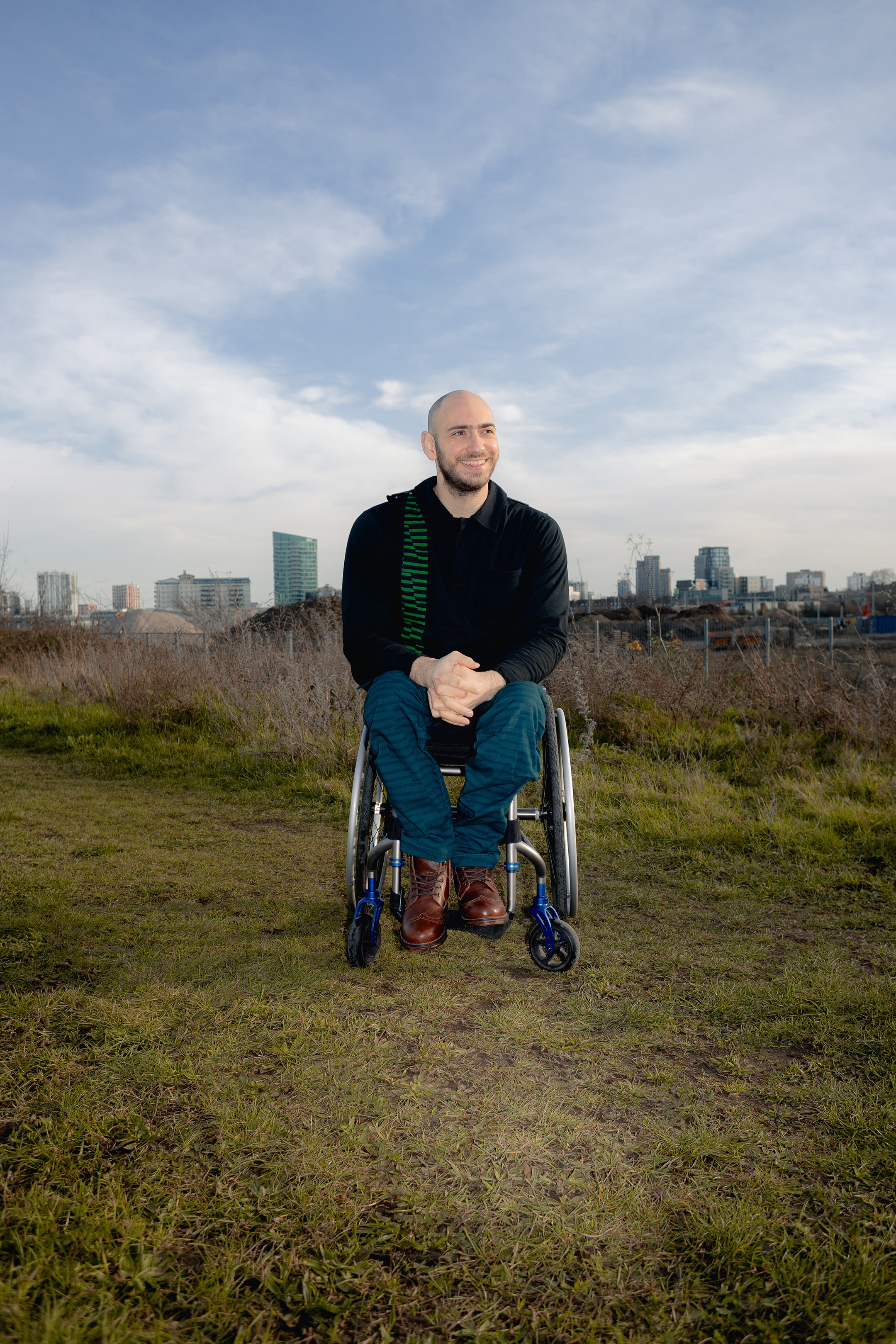
Hello, who are you and what do you do?
I’m Joel, and I’m a professional dancer with Candoco Dance Company. I moved to London from the USA 6 years ago. Along with dance I’m also a singer/songwriter.
How do you describe your style?
I’m pretty simple. I like boots, jeans and button-up shirts.
Do you have a favourite piece of clothing?
Apart from all my woolies, I have an L.L. Bean cotton shirt that I love. Simple, but so good!
How would you like the fashion and retail industry to change with your needs in mind?
I think jeans/trousers made for sitting would be great. Basically longer leg, higher back.
Check out the upcoming events at fashionopenstudio.com/events
JOIN US 19-20 January 2021
Fashion Open Studio, Fashion Revolution’s showcasing initiative, invites you to Berlin to join us in a virtual vavavoom of extraordinary and forward thinking fashion. For Mercedes-Benz Fashion Week Berlin, partnering with the Berlin Senate and MBFW and Fashion Revolution Germany, we are curating an important series of online events aimed at reconsidering the role of the fashion industry in a post-covid scenario.
What is the future of fashion? What lies ahead now that the pandemic has exposed so many fault lines in the way our society operates? Clothes play a crucial role in the everyday lives of the people who wear them, the people who make them, and the environment we all share: how can we redress our culture, our industry and our personal values to embrace the changes we all need to make to avoid a climate and human crisis?
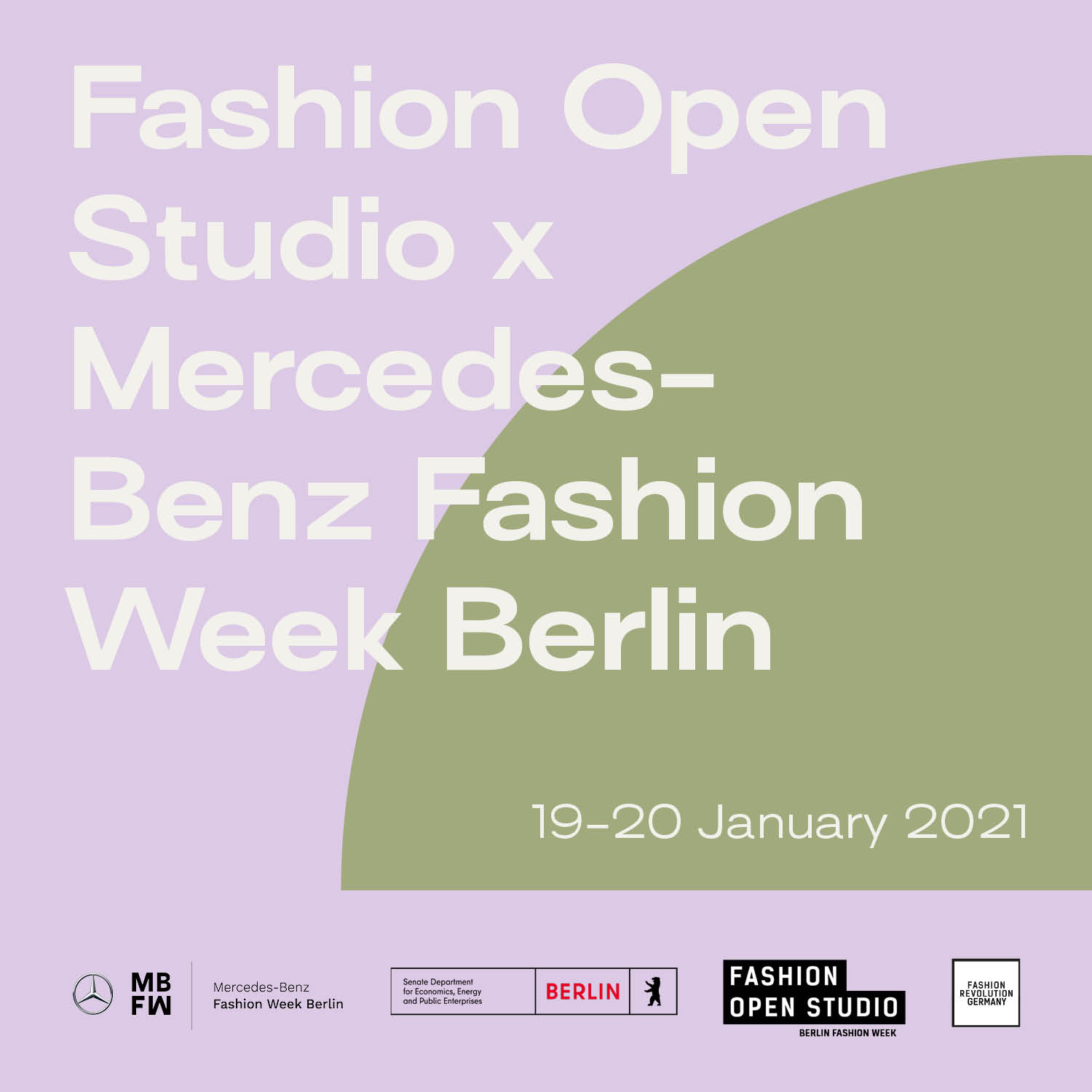
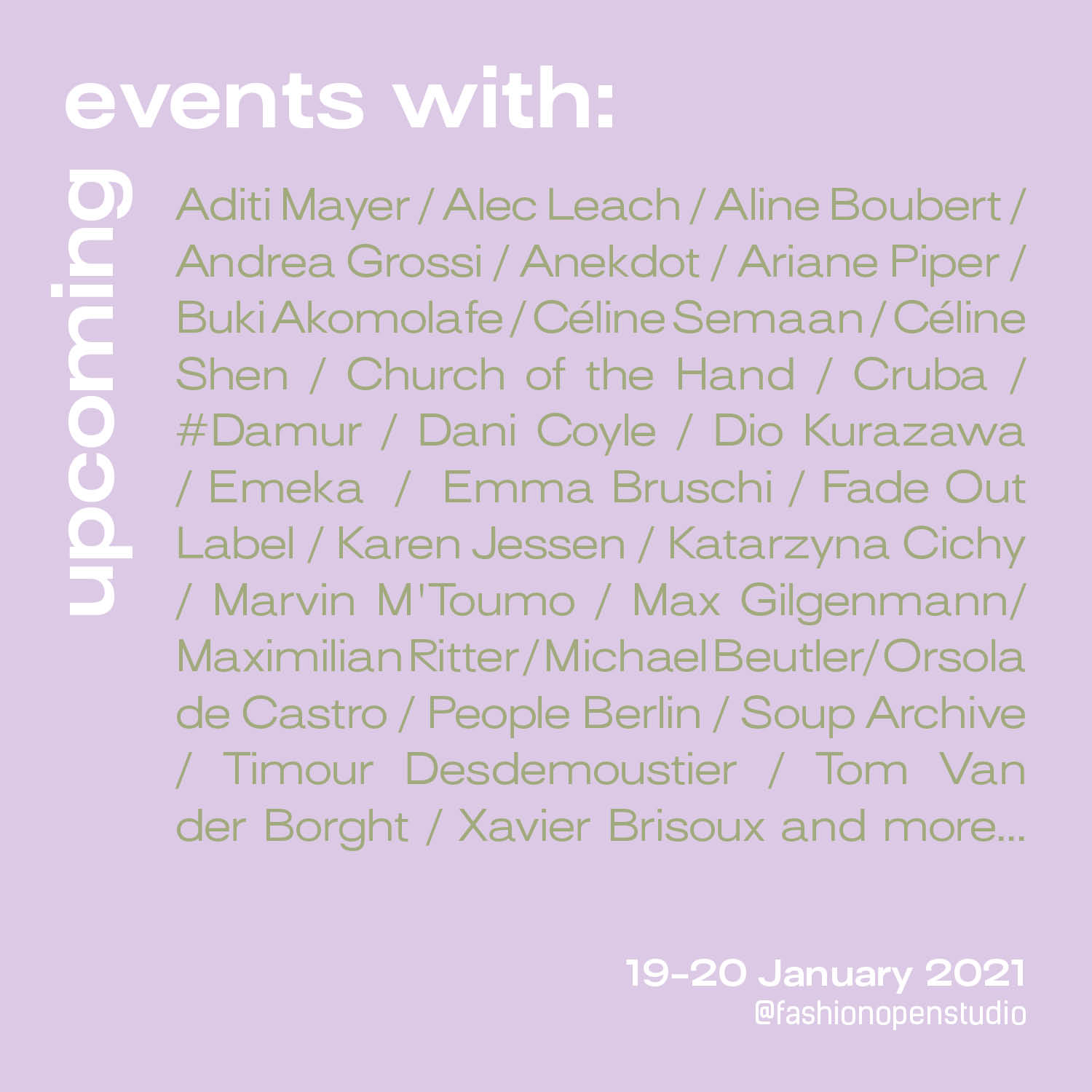
One way forward is to break the oligopoly whereby very very few mainstream brands dominate over 95% of the market, to make space for smaller, innovative brands, giving them the visibility their commitment deserves and introducing them to a new mainstream audience. If smaller, artisanal, independent, handmade, innovative labels were as ubiquitous as their un-sustainable counterparts, their products would be not just more available, but also more normalised. Sure, they could never be as cheap as the cheapest, but they could indeed rival and surpass many premium and luxury brands when it comes to quality of materials and make. So why aren’t they everywhere now that so many are looking for alternatives? Because our present system recognises only scale and growth, rewards unethical and unsustainable practices, cut-throat business models and promotes quantity over quality at every step of the supply chain. Everything else is deemed immature, irrational, unfit for purpose: creative, sure, but what is creativity compared to millions of sales?
And yet, if we allowed these brands to flourish and be the best they can be, small but perfectly formed, if we replicated thousands and thousands of small success stories all over the world and put as many as possible right next to the fashion giants on our high streets, which these days look the same from Milan to Mumbai, then we would be truly providing choice. Fast fashion and fast luxury don’t provide choice, endless runs of identically made products aren’t choice: they are an imposition. Choice is to be able to choose from many, not to select from a few. Which is why this FOS x MBFW programme is so precious, because it plays alongside the order but innovates spectacularly.
Your support, your viewings, your eyes on our program of independent designer showcases and intriguing insider conversations will help us cement radical thinking, will show you that the sparks that will form the new fashion firmament are alive and kicking and happening all over the place.
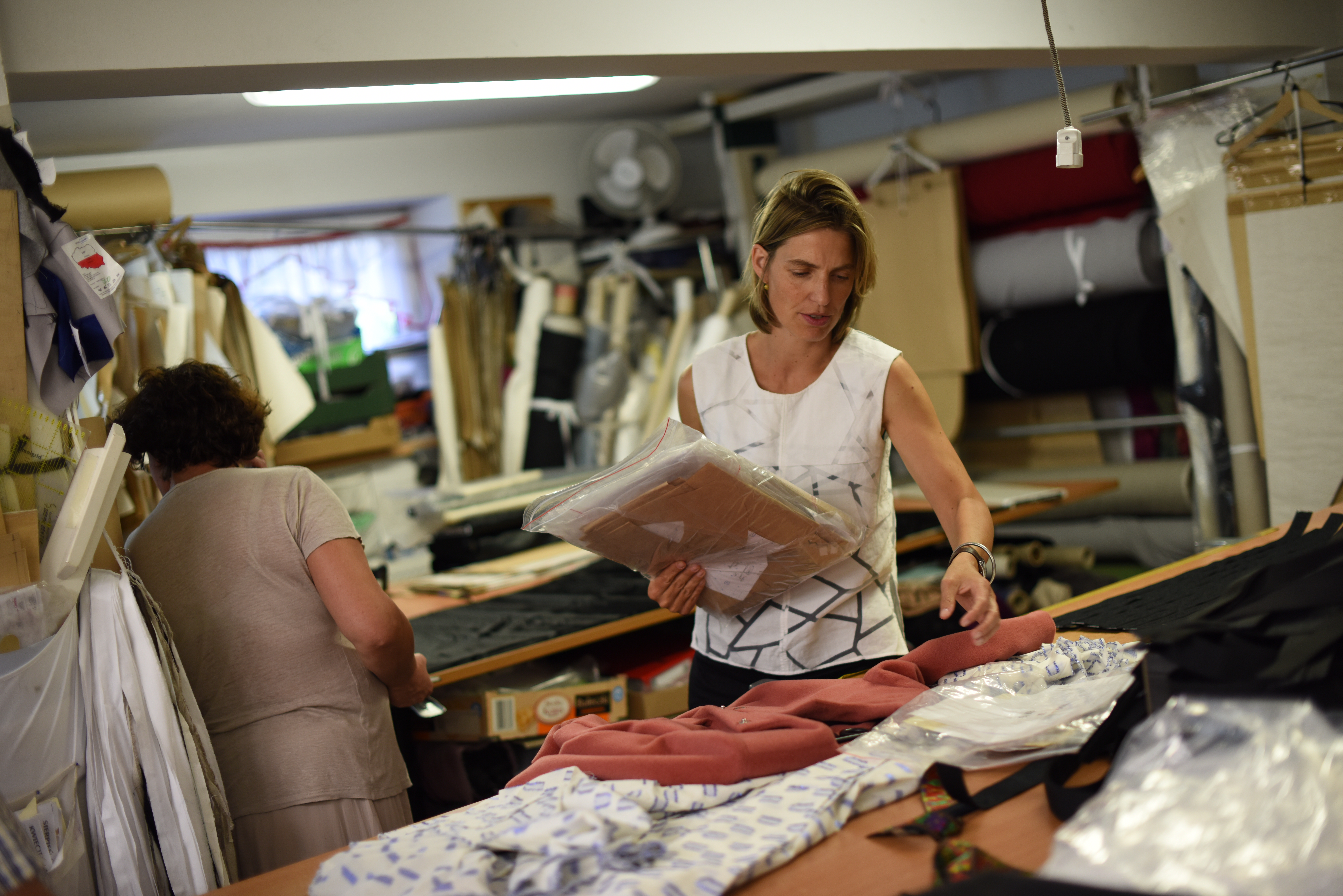
Why Berlin? Berlin is a focal fashion point, and most importantly, a fashion city with an established reputation for sustainable innovation and creativity, an ideal place to give visibility to a different way to showcase, one that we hope will influence several other cities in the future. Berlin could be one of the epicentres of a massive shift the entire fashion industry is clamouring for, the kind of fashion showcasing 3.0, the place where tables are turned and new habits are created, in line with a regenerative and sustainable fashion future. Berlin is cool, one of the coolest cities in Europe, and it lends itself perfectly to the image we want to associate with future fashion: creative, iconoclastic, irreverent, life changing.
But Berlin is only one stop in this journey, and over the coming months, culminating during Fashion Revolution Week 19-25 April 2021, FOS will take you all over the world, discussing topics as varied as heritage, technological innovation, new (and ancient) materials and techniques, and showcasing fashion as fashion will be: rigorously transparent, inclusive, regenerative, providing dignified work to those who work in its supply chains, and meaningful, long lasting clothes to those who wear it.
Change begins with new and emerging talent, and Fashion Open Studio gives designers an alternative way to present themselves and their collections via interactive workshops and by opening their studios to the public.
Open Studios. Five Berlin-based designers have been selected to host a series of digital workshops, studio tours and demonstrations: Anekdot, Emeka, Buki Akomolafe, Church of the Hand, and Karen Jessen. Access to the designers’ studios will be via Instagram @fashionopenstudio and at www.mbfw.berlin.
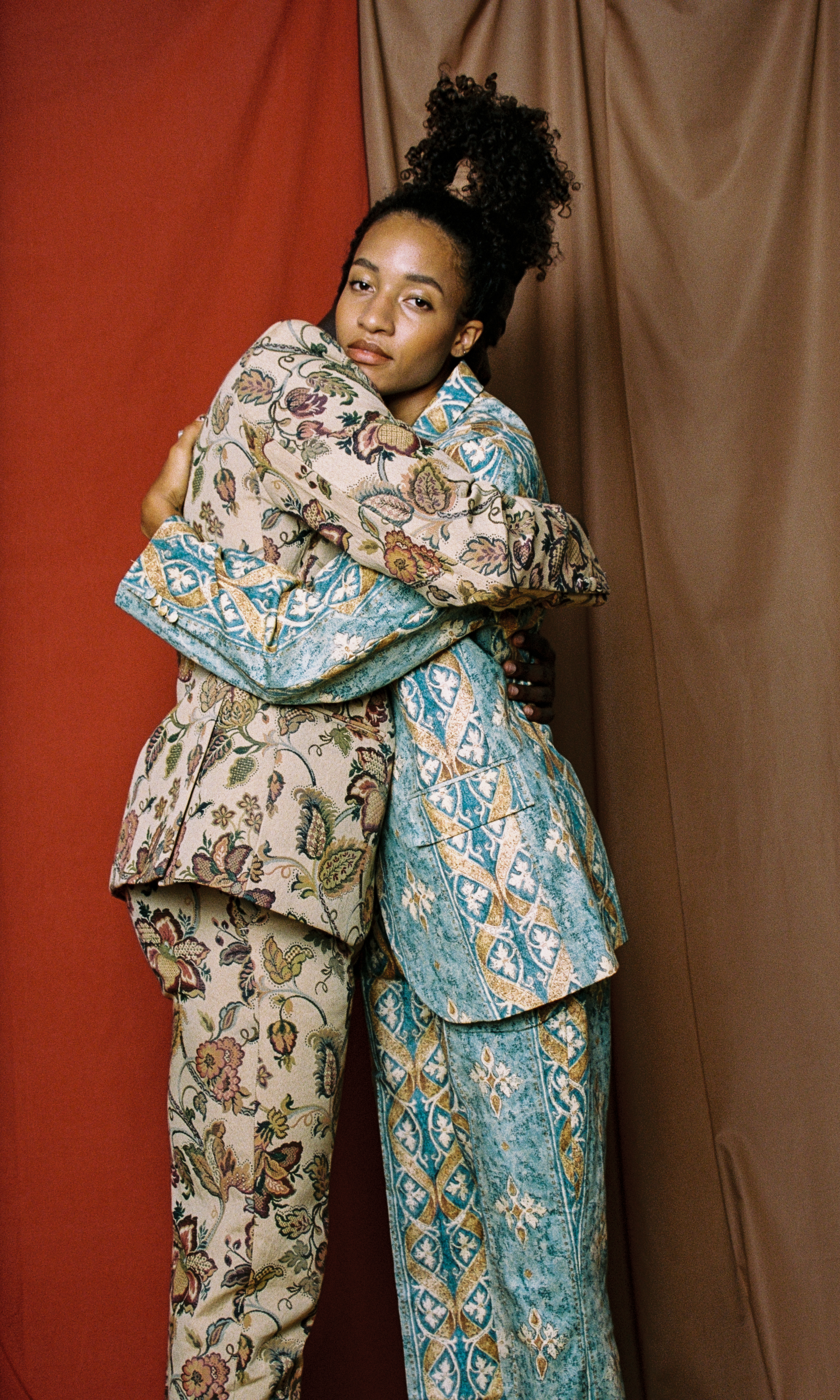
Designer mentoring programme. As well as a series of five live interactive digital Open Studios, the programme will champion and showcase the work of five Berlin-based designers who are leading the way towards greater sustainability in their practice, each with a different approach: Soup Archive, #DAMUR, CRUBA, Fade Out Label, and social enterprise pioneers People Berlin. These designers are part of a mentoring programme with Fashion Open Studio to help maximise their positive impact. We will also be highlighting the results of the FOS and Mercedes-Benz mentoring sessions with the ten finalists of the 35th International Festival of Fashion, Photography and Fashion Accessories in Hyéres.
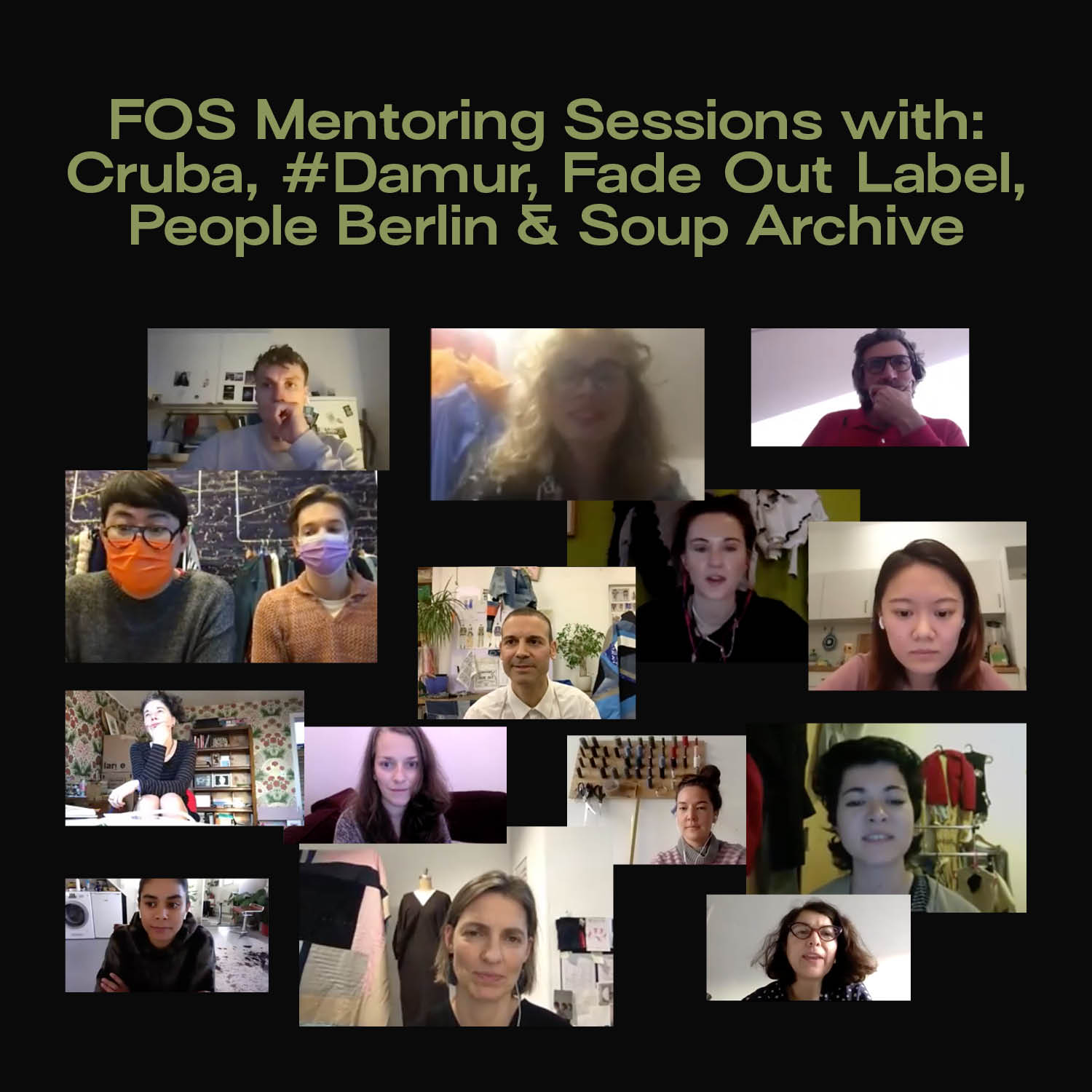
Curated Talks. A program of curated talks to contextualise and challenge the mainstream industry as we see it now, in the middle of a pandemic, and its role in the future. Looking at topics like Luxury, Arts and Culture and Activism, we will hear from emerging designers and stellar business professionals, each committed to making changes and encouraging solutions in their daily fashion practices. Speakers and moderators include Céline Semaan, founder of Slow Factory; Michael Beutler, Sustainable Operations Director, Kering; journalist and labour rights activist Aditi Mayer; Berlin-based designer Buki Akomolafe; and Dio Kurazawa, founder The Bear Scouts.
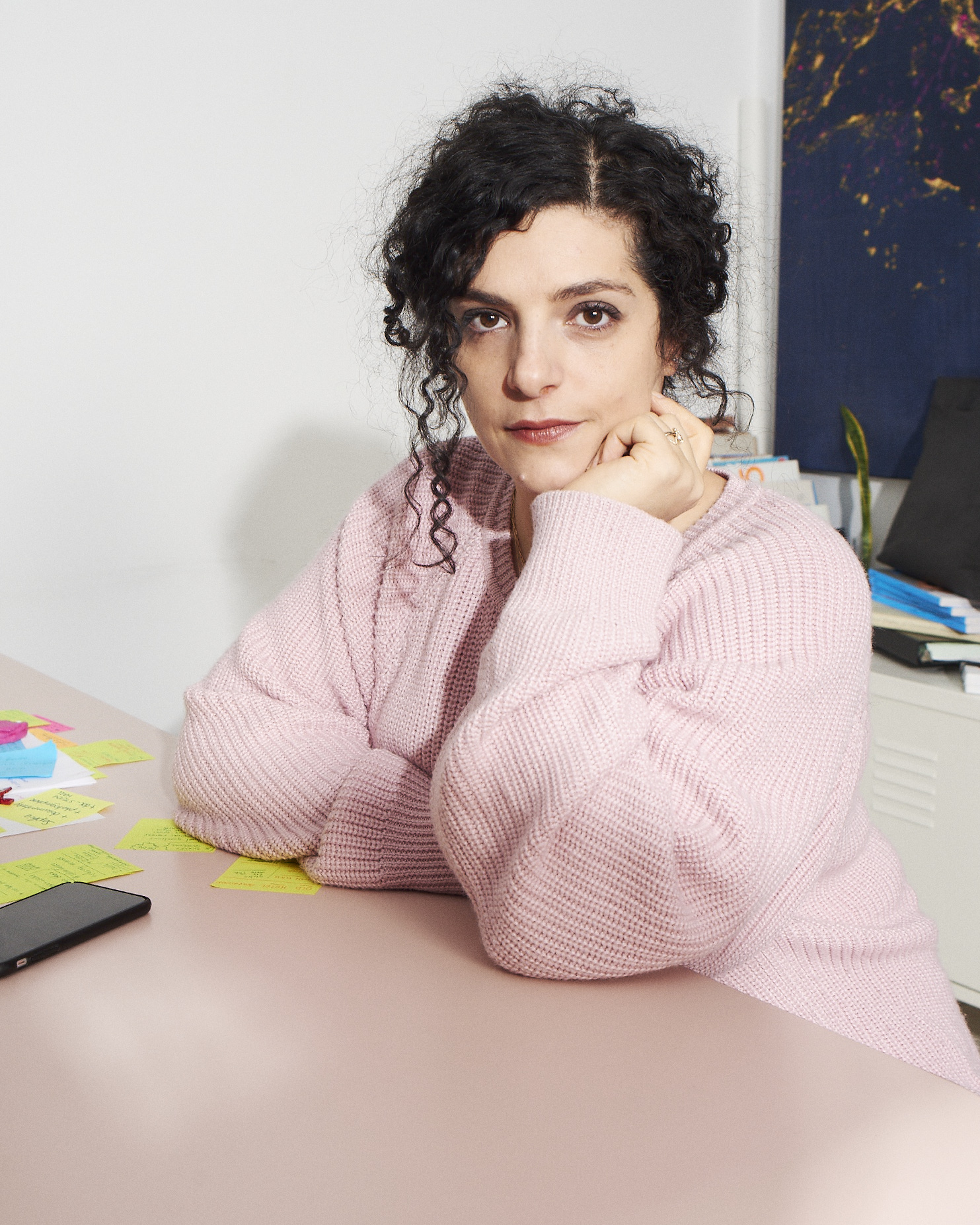
For the full FOS x MBFW programme and to register for the events, please see here.
Fashion Open Studio is Fashion Revolution’s showcasing platform established to celebrate the people and processes and create greater transparency around how our clothes are made. Fashion Open Studio curator Tamsin Blanchard reflects on a year of digital Open Studios which, despite the year’s challenges brought together creatives and audiences around the globe amid the strangest of times.
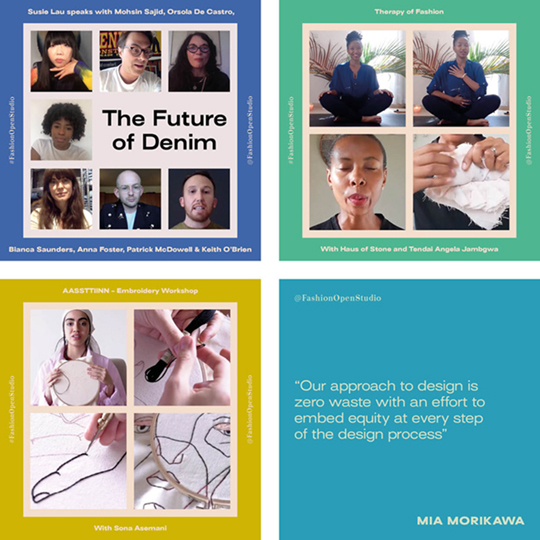
While it seems like the world has been on pause for 2020, we’ve been pretty busy at Fashion Open Studio. As the fashion industry has faced a crisis like it’s never seen before, this has been a year when the need for a total systems change has been laid bare for all to see. At Fashion Open Studio, we are three steps ahead, actively shouting from the rooftops about the designers and brands who are making it their business to urgently redesign everything from the materials they are using (in many cases, reusing) to eliminating plastic, focusing on local supply chains and markets, delving into every aspect of their work to ensure transparency, using social enterprise models to redistribute profits in equitable ways, and celebrating those dedicated to the small, the considered, the brave, the innovative and the independent.
It’s been a devastating year for so many designers struggling to make ends meet. As the conventional ways of showing fashion have imploded, the Fashion Open Studio showcasing initiative by Fashion Revolution is a way for us to support those who are actively creating change, and sharing what an industry that respects its workers, the resources it uses, and ultimately the clothes it makes to ensure they have longevity and lasting relevance, can look like.
In April, during Fashion Revolution Week and despite the lockdown affecting everyone taking part in Fashion Open Studio’s programme of events, we produced our most far reaching week of workshops, digital studio visits, specially commissioned films and interactive conversations yet. We were particularly inspired by those in our network including Phoebe English, Bethany Williams who founded the Emergency Designer Network, and made time for FOS as they worked tirelessly to produce PPE for hospitals. We partnered with Somerset House and the Sarabande Foundation in London as well as Lagos Fashion Week, and Mode Suisse, forward thinking retailers like Aassttiinn in Tehran, Studio XYZ in London, and the visionary think tank, Earth Logic. We were also supported by ISKO denim for a day of rethinking how we make, use, and think about this most universal of materials.

We hosted over 50 events, representing designers in 13 countries including many whose designers are not usually part of the mainstream conversation. Some of the feedback we have received has been incredible and demonstrates why this platform is so instrumental in changing the balance of the fashion industry, elevating the creative voices of those who are not compromising in their pursuit of a fairer, cleaner industry. Bhaavya Goenka, founder and creative director of the ground breaking brand Iro Iro Zero Waste based in Jaipur told us: “FOS 2020 has been a transformative experience for us here at IRO IRO and for me personally as well. As a brand situated in a tier 2 city of a developing country it democratises the platform for us and has opened doors to many new opportunities.”
At a time of deepest self-isolation, we connected so many fashion creatives, bringing them together along with university students struggling with working from home, makers, buyers, academics, fashion lovers and activists. There is so much we can learn from each other. We would like to thank all of our country coordinators who were involved in activating the week’s events – India, Iran, Vietnam, Mexico, New Zealand, Nigeria, Switzerland, Vietnam, Zimbabwe, Scotland, Czech Republic.
“Some of the feedback we have received has been incredible and demonstrates why this platform is so instrumental in changing the balance of the fashion industry, elevating the creative voices of those who are not compromising in their pursuit of a fairer, cleaner industry.”
It’s been a particularly difficult year for fashion graduates and we used our Instagram platform to showcase some of the designers who shone for us including Tamsin J Lines from University of Leeds, and Sandra Poulson from CSM (check out her extraordinary video on FOS IGTV). We also highlighted the work of the newly graduated Paolo Carzana who took part in our Somerset House event, and fellow CSM MA bright light, Matthew Needham.
Since April, Fashion Open Studio has activated events beyond Fashion Revolution Week. In September, the Fashion Revolution USA team worked with us on an event with the Brooklyn based brand Fly By Night for Sustainable Fashion Week. In November, we curated an event focused on regenerative and indignous yarns with 11.11 at the Sustainable Fashion Day at Lakmé Fashion Week.
As part of an ongoing partnership with Mercedes Benz, we have created a roadmap for better ways to showcase fashion to support them with the fashion weeks they partner with around the world. Thanks to them, we also took part in the Hyères Fashion Festival with a mentoring programme for the ten finalists to create a look created with the Fashion Open Studio vision and criteria in mind. The ten looks by designers including Emma Bruschi and Andrea Grossi will be showcased at Berlin Fashion Week in January 2021, where we will be activating Fashion Open Studio to help transform MBFW with the City of Berlin into a fashion week that has sustainability at its core. Watch this space for more information on the programme which will include ten designers working in Berlin.

We are thankful to the Mayor of London and the London Fashion Showcasing Fund for supporting Fashion Open Studio to create an ongoing programme of events which have included the launch of the Marques’Almeida manifesto and their publication See-Through during London Fashion Week in September, a short film introducing the craft community collaboration of emerging talent Cecily Ophelia at the Sarabande Foundation’s temporary store House of Bandits in December, and a hugely successful digital SpeedSHARE information exchange eve on the event of Black Friday with presentations by Dr Jen Ballie with the V&A Museum Dundee, Hasna Kourda of Save Your Wardrobe, and Layla Sargent of The Seam London talking about regenerative solutions to making our loved clothes last. The programme will continue in February 2021 with Congregation Design and the adaptive clothing brand startup, Reset.
We are excited to announce the FOS 2021 programme in the new year with a new cohort of diverse and exciting talent from 18 countries in the Global Network as well as highlighting the work of some of the UK’s designers leading the way in innovation.
Looking beyond Fashion Revolution Week 21, we are very excited to be working with the British Council to create a series of events in the run up to COP26 in Glasgow. More on this later in the new year!
We are committed to amplifying all cultural perspectives through FOS and to challenging ourselves to seek out the many who have been under-represented by the industry for so long. We are delighted to announce that to ensure we do not compromise on this, we have been joined by the first FOS advisory board: Dio Kurazawa, founding partner of the Bear Scouts; Jennifer Ewah, lawyer and founder of Eden Diodati; Kellie Dalton, responsible fashion consultant, The Right Project; Sunny Dolat, creative director and co-founder The Nest Collective; Matthew Needham, designer and Fashion Revolution creative collaborator. We welcome the scrutiny, experience, wisdom and rigour they bring to Fashion Open Studio and look forward to growing the initiative under their watchful eyes.
Thank you to everyone who took part in Fashion Open Studio this year. We welcome your ideas and feedback and look forward to working with you in 2021.
Covid-19 was not going to come in the way of Fashion Open Studio 2020 and its audience. If anything, the pandemic gave this year’s designers a greater audience than ever. The studio tours, workshops and conversations were pivoted to a digital format, allowing us to #StayHome while also staying connected with the creative community making use of this time to rethink systems, supply chains and resources.
Sustainability means many things
We celebrated the work of 53 designers across 14 countries including Iran, New Zealand, Vietnam, Nigeria, Zimbabwe, Switzerland and Germany. There was so much to learn from the designers who took part, each one with solutions to the challenges most pressing to them. At Fashion Open Studio we understand that sustainability means many things (and sometimes, nothing at all). Every designer taking part in this programme is finding solutions that will help to move their own business forward without over stretching the planet’s resources and with respect for artisans and garment workers who craft and stitch their collections. The purpose of Fashion Open Studio is to share these stories and help them to reach the audiences they deserve.
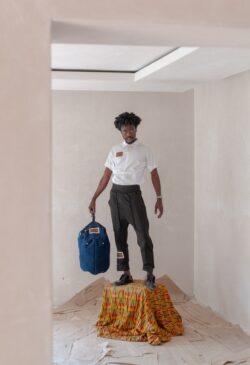
From Fashion Revolution’s incredible global network there were so many eloquent voices, with as many different perspectives on how clothing should be made and valued. From Zimbabwe, Fashion Revolution’s country coordinator Rudo Nondo talked to Julian Tamuka about his brand Guyllelujah. Julian had previously not considered ideas about sustainability until he was introduced to Fashion Revolution through Fashion Open Studio and realised his use of limited resources – deadstock materials and off cuts – and his philosophy of making staple items of clothing because as he says “it’s a staple for a reason, it’s more likely to be of value and stick around longer,” is the way he works out of necessity.
I recommend everyone watches his short video, The New Philosophy of Fashion as there is so much to learn from his approach.
Likewise, from Harare, Haus of Stone presented Therapy of Fashion, which combined mediation and making one session of mindfulness and creativity. The brand’s founder, Danayi, led us through a fusion of yoga; traditional mbira music and hand sewing. Participants are invited to send the roses they make in the workshop to become part of a collective scarf called ‘Hope’.
View this post on Instagram
In Switzerland in collaboration with Mode Suisse, Rafael Kouto asked “What is Upcycling? And what is waste?” Rafael showed how to ‘pimp’ your garments with an introduction on his upcycling practice and so much information and advice on rethinking and valuing the contents of your own wardrobe. It’s a really wonderful and informative session.
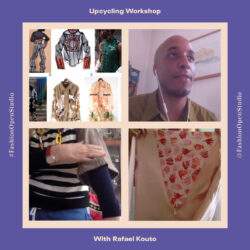
From Pune in India, Karishma Shahani Khan invited small groups into a virtual studio each day to learn quilting, embroidery and hand sewing techniques in a series of sewing circles with the team from Ka Sha and the artisans they work with. They wanted to share the inherent social setting of storytelling and conversations that they witness within their everyday working environment with guests.
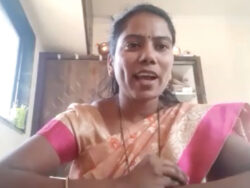
Also in India, in Jaipura in Rajasthan, Iro-Iro showed their practice around implementing zero-waste for their MoonWash collection, focusing on New Heroes with illustrations and readings celebrating women throughout history who have been independent thinkers and doers.
If you missed these remarkable stories, they are still available as a series of readings of letters to women from Cleopatra to the spy princess Noor Inayat Khan, and there is a collection of clothes inspired by each of them.
Vietnamese brand Tamay & Me introduced Mien artisan and co-founder Tamay from Ta Phin village in Sapa,
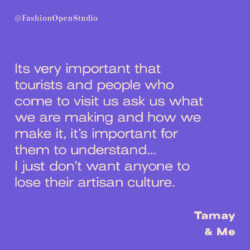
with a special film screening followed by a Q&A with her co-founder Hannah Cowie to explain how they work together and the heritage of the unique craftsmanship that goes into every garment.
Creativity in lockdown thrived
While the world was in lockdown, many designers still had access to their studios, either because they live in the same space, or because they were using them to continue working at a safe social distance in the essential work of making PPE and hospital scrubs as many of the Fashion Open Studio network were doing. Phoebe English talked to us from her Deptford Creek studio in south London, explaining how to quilt with waste using her paper templates.
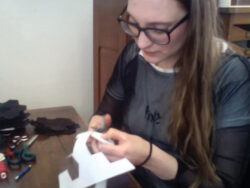
As she spoke, the scrubs she had been making were being counted and packed up ready to be delivered to hospitals in need as part of the Emergency Designer Network with fellow FOS designer Bethany Williams. Elliss Solomon, founder of Elliss, took time out from her work for Scrub Up for the NHS to talk us through her workshop on collage – a key part of her creative development when she is designing a collection. Many others taking part in the week were playing their part in making masks, scrubs and PPE and of course, the week’s events were a great way for people to spread the word, stay connected, and share the challenges of trying to keep business going.
Collaboration makes sense
While there are designers who are still fledgling brands, this is a particularly difficult time for those newly graduated. Among the thousands of fashion graduates unable to even show their final collections as part of a degree show, we showcased the work of two emerging talents who had shown their collections as part of the Central Saint Martins MA show in March, just a week before the lockdown. The portfolio visits traditionally held for industry experts to head hunt talent, were cancelled, with future job prospects on hold for many. Matthew Needham, who temporarily joined the Fashion Revolution team for the week to help on production and Zoom management, talked us through his final collection ØYEBLIKK / 2020 ‘IN THE BLINK OF AN EYE’.
View this post on Instagram
While Needham is an advocate of waste management – a master of using trash as a precious resource in his collections – he is also becoming expert in collaboration, and is sure that this is the way forward. For his session, he brought together his co-collaborators Sneaker artist Helen Kirkum, Biotech materials researcher Alice Potts and experimental milliner Jo Miller. Together they explained some of their processes and how working collectively is a great way to consolidate sustainable thinking, encourage innovation and help lift each other’s practice and find new audiences.
Somerset House x Young Creatives
Fellow CSM MA graduate Paolo Carzana moved back to his hometown in Cardiff, Wales, the week he was supposed to be showing his final collection to the world. Paolo was chosen as the finale to the degree show, with The Boy Who Came Back to Life, a collection packed with details, extraordinary materials, botanical dyes, Pinatex textiles, and layers of story-telling, autobiographical notes, and months’ worth of research.
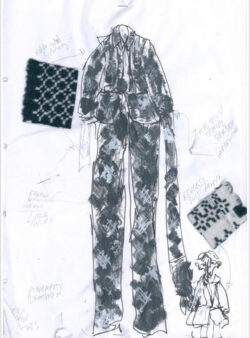
For his session which was part of the afternoon of events in partnership with Somerset House and its Young Creatives programme, Carzana talked from the balcony of his flat overlooking the Cardiff stadium which was at the time, being turned into a Nightingale hospital. He had made a special film, A Self Isolation Waltz for the event showing his collection against the backdrop of the building site below, and talked through his sketches, fabric swatches and references. He also talked about his plans to make a capsule collection for the planned digital London Fashion Week in June, re-using pieces from his previous work. The pandemic has forced him to rethink how he is going to work and sell – and be even more resourceful creative and sustainable as a business going forward.
Also taking part in the Somerset House programme were Bethany Williams, Katie Jones and Congregation Design. Bethany was part of a week-long series of events to celebrate the anniversary of Earth Day, planned with Somerset House long before the pandemic took hold. You can watch highlights of the day here.
There is so much to learn from the 2020 Fashion Open Studio designers. We are still absorbing and catching up with so many incredible and diverse sessions. The digital programme allowed these small, intimate studio conversations and workshops to be viewed by a global audience creating conversations that reverberated between designers and communities that hadn’t previously connected.
We are starting to plan for Fashion Open Studio 2021 and will be announcing how to apply to take part in the coming months. Until then, do spend some time watching the videos on our YouTube playlist and share the knowledge and the work of these change maker designers far and wide.
To stay up to date with Fashion Open Studio, subscribe to the Fashion Revolution youtube channel and follow Fashion Open Studio on instagram, twitter and facebook.
This year during Fashion Revolution Week more than 40 designers will participate in the Fashion Open Studio, the Fashion Revolution initiative, where designers who engage with sustainable practices open up their studios to reveal the processes behind the collections. Fashion Open Studio’s mission is to celebrate the designers who are mindfully answering the question, ‘who made my clothes?’. As we know, it’s a complex issue and there are many challenges and as many different solutions. Designers themselves hold the key to many answers; creative thinking will provide the innovations for the systemic change necessary to ensure the future success of an industry that has minimal social and environmental impact. Fashion Open Studio hopes to provide a platform for best practice and experimentation to be celebrated, encouraged and shared.
This year, Fashion Open Studio has formed a partnership with Common Objective which is creating a permanent hub for designers to exchange ideas, measure their progress and continue the conversations beyond the workshops and events of Fashion Revolution Week.
What follows are the lessons we can learn from this brilliant group of changemakers.
Lesson one: The future is upcycled and fashioned from waste.
In 2017, Fashion Open Studio launched its debut week of events, headlined by the pioneering Christopher Raeburn. Back for a third year, the Raeburn Lab in Hackney remains an open door studio all year round, but will host a tote bag making workshop from waste parachute material on Saturday, April 27th. The brand is driven by the 4 R’s principle – Remade, Reduced, Recycled, Raeburn – that has been fundamental since the label’s inception in 2010. From decommissioned parachutes to deadstock military garb, Raeburn is consistently fueled by transforming waste into new forms.
Yet Christopher Raeburn is far from the only upcycler in the Fashion Open Studio mix. Priya Ahluwalia, recipient of the 2019 H&M design award, finds her unique aesthetic in the patchworking of vintage materials into next gen sportswear. And then there is Phoebe English, who gave evidence of what is means to be a small designer in Britain today at the Environmental Audit Committee’s hearing around the sustainability of the fashion industry. The designer collects all of her offcuts from her producers and repurposes these scraps into new designs as an effort to redirect material that would otherwise head to landfill. Her Quilting from Waste workshop is an opportunity to learn a skill, meet like-minded people, and find out how English is constantly challenging herself to learn and improve.
Unique to many of these waste magicians, is that they are not only repurposing fashion waste, but the end-of-life material from other industries and sectors. This is equally true for Elvis & Kresse, the luxury brand that began life as a way of repurposing industrial fire hoses once they’ve weathered their last flame. The brand upcycles these hoses into handbags, wallets and travel bags for men and women alike, preventing the entire waste hoses of the London Fire Brigade into useful, durable product that should last a lifetime.
With too many designers to name declaring waste as the raw material of the future, the list goes on. See: Rafael Kouto, Lois Hazel & Simetrie, Duran Lantink, Turtle Doves, Rehandle and Bethany Williams.
Lesson two: Natural processes rule.
Scottish designer Cavan Jayne attributes her respect for nature to a childhood on the coast. She explains, “As the air, light and rain collide, colours and form, refract and expose the beauty nature creates. By using all natural fibres and colour pigment from various types of wood and plant, our pieces are natural in every sense of the word to manifest the beauty straight from nature”.
On Sunday, April 28th Cavan Jayne will host a botanical colour workshop, sharing how her wood- and plant-derived pigments come to life. And she isn’t the only material botanist on the Fashion Open Studio Itinerary this year. Mallika Chaudhuri’s debut brand, INDOI, will share the art of silk and cotton crushing in her London home studio, showing how you can revive unworn and stained garments or make your own crushed silk scarf.
Across the globe, Melbourne label A.BCH – the self-proclaimed TMI of transparency, is opening their studio for a natural dyeing workshop that focuses on shibori and resist stitching.
Lesson three: Technology just may save us.
On Thursday, April 25th, the Sarabande Foundation, will present an evening of lighting talks explaining the new technologies slated to shape the future of fashion consumption.
Speakers include Lorenzo Albrighi and Kuo Shih Yun the founders of Lablaco, the platform aiming to make fashion circular, alongside Hasna Kourda, founder and CEO of Save Your Wardrobe, an app that digitises the clothes we own, endeavoring to ensure that clothing is better kept track of and maintained. They will be joined by Sarabande alumni milliner Leo Carlton, who’s answer to consumption en masse is at-home 3D printing technology that uses fermented plant starch as its raw material. Leo Carlton will exhibit his latest collection and let you try out 3-D modelling at Sarabande through the week.
Other technology solutions on display across the Fashion Open Studio lineup include speculative designer Tina Gorjanc’s BioLeather workshop in collaboration with Makerversity, and live-streamed conversations from Lablaco for global audiences to take part.
Lesson four: Loved clothes last.
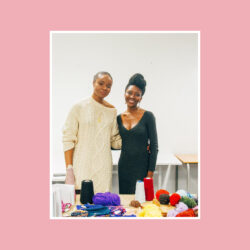
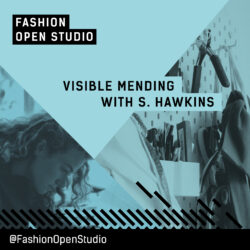
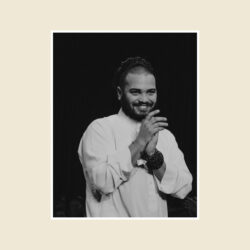
The Fashion Revolution mantra, #LovedClothesLast is heavily celebrated through the art of mending and DIY. London maker S. Hawkins is hosting a workshop on April 27th that leaves the creation of new things at the door and asks attendees to bring their weathered garments for an afternoon of visible mending. With findings from Greenpeace that show that we can reduce a garment’s carbon emissions by 24% if we keep it in our wardrobe for two years instead of one, designers who encourage mending are an important part of the climate puzzle.
In Berlin, designer collective Soup Archive request that their workshop attendees bring in a garment that will be transformed by the collective’s members before their eyes. Along a similar line, LVMH prize semi-finalist, Duran Lantink will be hosted by the innovative concept store 50M in London’s Victoria. Lantink will be showing his ‘Straight from the Sale Bins’ installation which takes inspiration from the excesses of Black Friday. He will be also launching his new bespoke Deconstructed and Reassembled upcycled collection where prospective clients can book one of ten appointment-only consultations to discuss how their no longer worn pieces can be recreated into something new and precious. These pieces will be taken back to his Amsterdam studio where he will transform them in a new model of second-life bespoke dressmaking.
Lastly on the craft and longevity thread, a weeklong Wool and the Gang popup is presented in collaboration with Katie Jones, Black Girl Knit Club, and Playwool.
Lesson five: Now, more than ever, fashion must use its political voice.
The Fashion Open Studio programme wouldn’t be complete without London’s legendary activists on the menu: Katharine Hamnett and Vivienne Westwood. April 27th, Katharine Hamnett will speak about fashion’s devastating consequences on the environment and the need for political action from a venue next door to her London Fields studio. Queen of the protest tee, Hamnett has declared, “We need radical change now, and I think the only way we’re going to get that is with legislation”.
Like Hamnett, Vivienne Westwood is as much a campaigner as a designer – using her runway for every issue from civil rights to Scottish independence, and the climate revolution. As part of Fashion Open Studio, Westwood’s original Worlds End shop will be the location for small groups to hear the stories behind the original punk DIY aesthetic which is still very much alive and kicking in the form of special one-off pieces made from waste and old stock.
Finally, a new voice in fashion’s policy conversation is Teatum Jones. The design duo made headlines when they released their SS2019 collection by way of a roundtable on Global Womanhood in place of a Catwalk show. The Teatum Jones studio invites guests to a Q+A on their creative process while participants take part in freestyle hand embroidery.
All Fashion Open Studio events are listed on our Linktree! Registration is essential. Select events will be live streamed or recorded for Fashion Revolution’s global audience. Learn more at: https://www.fashionrevolution.org/about/fashion-open-studio/
A beautiful piece of homeware, clothing or jewellery will bring joy to the eyes that behold them. But hidden in those objects could be ugly stories of mistreatment of the workers who toiled to bring the pieces to life in the first place. However, on a heartening note, the number of social and commercial enterprises who are knitting up ethical supply chains with a strong focus on community building, is on the rise.
Three such passionate entrepreneurs came together to share their experiences and perspective on ‘how to work with communities to create ethical supply chains’. The discussion was organised by Fashion Open Studio at a theme-appropriate venue, Maiyet Collective in London, the pop-up space that curates positive impact luxury brands.
The speakers included Jennifer Ewah, Emily Mathieson and Sophie Slater. A lawyer in her day job, Jennifer is the founder of sustainable jewellery brand Eden Diodati while former Conde Nast travel editor, Emily helms the homeware brand, Aerende. Sophie Slater is the founder of ethical fashion brand, Birdsong. Sustainability journalist and founder of ethical lifestyle site, BICBIM, Lizzie Rivera, moderated a rather heartfelt conversation.
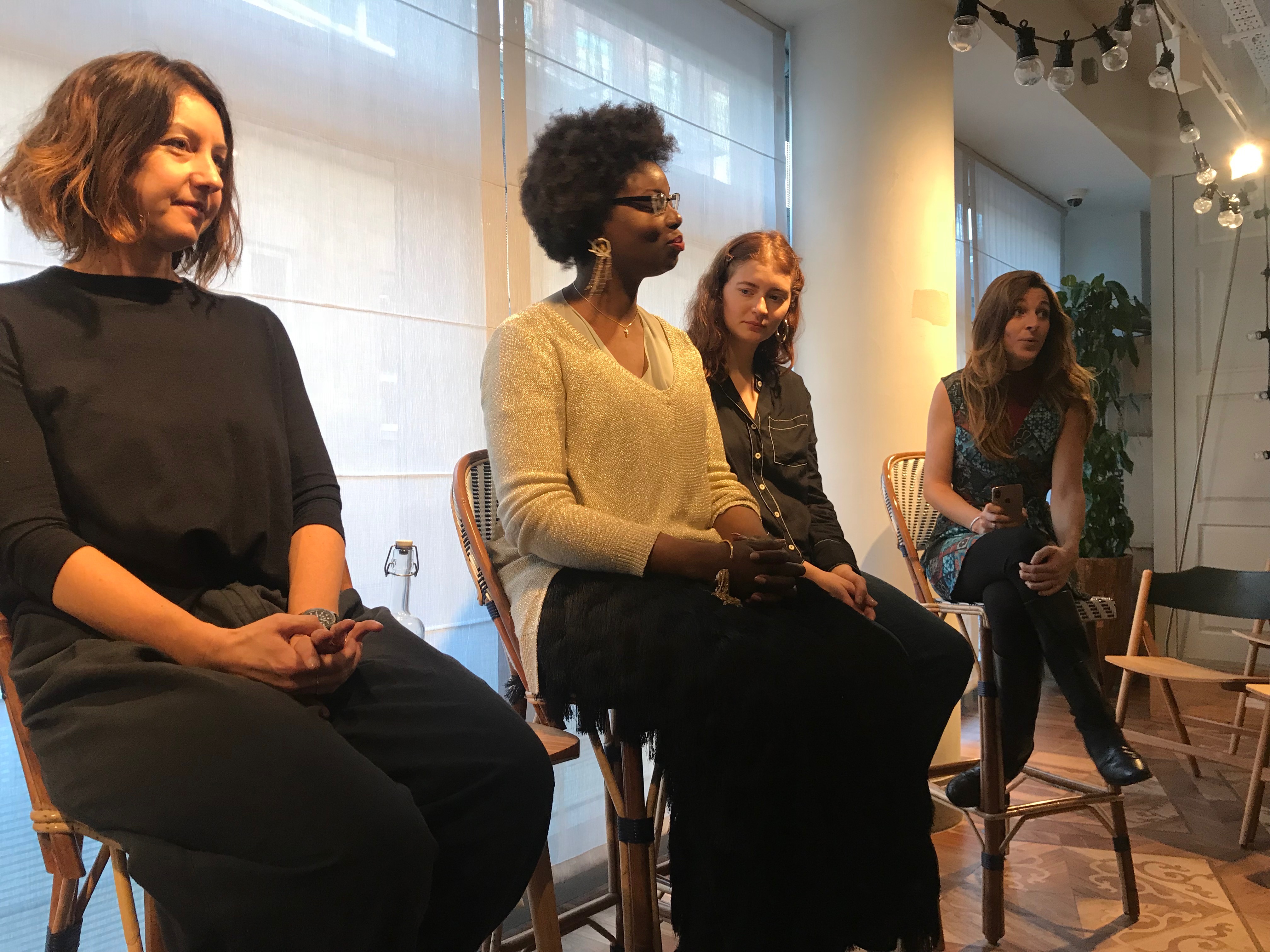
The opening address from each speaker highlighted the fact that their work is not cause exploitative. The ethical business model doesn’t profiteer from the suffering of the communities, rather it thrives on the stories of resilience, courage and a sisterhood that supports each other. Jennifer works with over 100 women artisans in Rwanda who survived the conflict genocide in the 90s, while Emily partners with charities, supporting organisations and social enterprises across UK. Sophie who’s brand tagline is ‘no sweatshops, no photoshop’ works with London-based women’s charities.
The names of these women don’t just add up to a HR headcount. Rather accounts of these women, told first-hand, moved the audience.
Said Jennifer, “The ladies who bead my pieces are orphans, widows and survivors of gender-based violence. But, I am not dealing with stats. Her name is Janette and she is making exquisite jewellery that could find selling space at the V&A museum. I just have to push for their work to be recognised so they have a seat on the table within the sphere of affordable luxury.”
Through her jewellery business, Jennifer is challenging the preconceptions of ‘Made In Africa’. Her pieces are currently stocked at Harvey Nichols and Macy’s.
At this point, Lizzie asked the speakers, other than fair wages what else is important to these communities.
In addition to fair wages and help with route to market, Emily touched upon the intangible benefits reaped by her community workers. Their self-esteem is boosted as the work gets recognition. In her work with refugee groups, Emily also discovered that the process of making and socialising with fellow community members was therapeutic for many and helped them with issues including behaviour and anger management. Her organisation is working out an interesting approach to quantify the impact on mental health. “This is still work in progress but for every 1 pound spent with us, you will save public health service 8-9 pounds because that raft of support is beyond monetary.”
Jennifer added, “The dignifying aspect of working on something that is high-end and precious in itself is game changing for the psychology of people who have been through horrendous situations.”
Such recognition and endeavours have inspired bigger businesses to reach out to maker communities. Here, Emily adds a note of caution about some brands using such limited collaborations for virtue signalling as it makes them look good. She encourages customers to always ask questions while shopping for products that support a cause.
Staying with the customer, Lizzie asked the pertinent question, “Do customers buy from you for ethics or the product?”.
The answer was unanimously in the favour of the product and that a pity purchase would not make business sense in the long run.
Sophie spoke about Birdsong’s journey over the last 4 years. “We stepped up the focus on product by moving sourcing and product design in-house. As a result, our audience base has expanded from ethically driven customers employed in the NHS to mainstream fashion press. Our range of 100% organic cotton feminist tees is the real deal compared to the versions available on the high street. This lower price entry product is popular with young buyers”.
View this post on Instagram
Emilly added, If you buy my products only for social cause then I fail as a designer. Our products are timeless. You will love them and then feel good about the fact that they come from a purpose driven company.”
The purpose of such businesses expands way beyond the money-making framework. Not only do they support its community of makers, inspire other businesses but also educate and encourage buyers to shop slower and be more mindful. However, Sophie acknowledged the challenges of running a show that is a departure from the ‘business as usual’ approach. She calls for a real change in the investor mindset that is still obsessed with hockey stick growth curves and the breadth of reach over depth of reach. Wealth creation also needs to include social and environmental wealth.
Contextualising at an industry-level, Jennifer declared that the big businesses did not have a choice anymore given that we have 12 years to tackle the climate change crisis. She said, ‘The world is in serious trouble and we are at a tipping point. You will look off-key if you are a business just pursuing money”.
The week’s events kicked off at the V&A Museum, when Katie Jones and Phoebe English took a taster of their crochet and patchwork workshops to the opening of the museum’s ground breaking exhibition Fashioned From Nature. Phoebe, who has been nominated for the 2018 Fashion Awards for Emerging Talent Menswear, hosted a Quilting From Waste workshop at her Deptford Creek studio complete with a poetry reading by Wilson Oryema who recited from his book Wait (you can listen to him reading here). It was a wonderful day spent stitching together patches of Phoebe’s many shades of black remnants, and talking to the designer about craft, making, and the issues around waste in the industry.
Every Fashion Open Studio event is different and it’s up to the designers to decide what they want to do and for the public who visit to ask the questions they want to ask. Congregation showed their collection made by a cooperative of designers as part of a dance performance by the contemporary dance duo SistaSista. Congregation’s workshop the following day resulted in two one-off T-shirts made specially for Fashion Revolution. Elvis & Kresse demonstrated how they make finely crafted accessories out of discarded fire hose and rescued Burberry leather at their beautiful mill in Sittingbourne, Kent. John Alexander Skelton and Roberts|Wood discussed craft, technology and limited production at the Sarabande Foundation.
For the dynamic design duo, RCA alumni OneByMe it was an opportunity to launch the #BirthOfANewMovement. Their HOWWILLYOUMAKEIT? event took the form of a workshop where participants made their own ONE-Piece Tee under the supervision and guidance of the designers at their studio space in Stepney, east London. This was followed by a party with their signature cocktails made using their own home grown basil (it’s grown using the compost from the wormery which is fed by their textile scraps) and amazing musicians featuring Rosanna Bass.
Other highlights included the launch event hosted by Chelsea College of Arts in partnership with I Love Linen. Textile students showed off their experiments with linen – in a specially grown field of flax – while Fashion Open Studio curator Tamsin Blanchard spoke to Patrick Grant of Community Clothing and Caren Downie of ByOcular about nurturing jobs in clothing and accessories production and keeping manufacture local. We partnered with the online resale platform Depop to host a Nothing New workshop making keyrings from discarded odd trainers with Helen Kirkum; Vivienne Westwood’s couture workshop talked about their processes to a crowd eager to hear about the craft of tailoring so key to Westwood’s work and Christopher Raeburn hosted Raeburn Repairs, a day of free repairs at his Hackney studio.
We are looking forward to announcing the line-up for Fashion Open Studio 2019 – the alternative to fashion week, which shines a light on best practice and innovative systems, techniques and processes. Follow us on Instagram @fashionopenstudio and Twitter @fashopenstudio and sign up for the Fashion Revolution newsletter to be the first to know about upcoming events and workshops.
